Doctoral Program
The Ph.D. program is a full time program leading to a Doctoral Degree in Economics. Students specialize in various fields within Economics by enrolling in field courses and attending field specific lunches and seminars. Students gain economic breadth by taking additional distribution courses outside of their selected fields of interest.

General requirements
Students are required to complete 1 quarter of teaching experience. Teaching experience includes teaching assistantships within the Economics department or another department .
University's residency requirement
135 units of full-tuition residency are required for PhD students. After that, a student should have completed all course work and must request Terminal Graduate Registration (TGR) status.
Department degree requirements and student checklist
1. core course requirement.
Required: Core Microeconomics (202-203-204) Core Macroeconomics (210-211-212) Econometrics (270-271-272). The Business School graduate microeconomics class series may be substituted for the Econ Micro Core. Students wishing to waive out of any of the first year core, based on previous coverage of at least 90% of the material, must submit a waiver request to the DGS at least two weeks prior to the start of the quarter. A separate waiver request must be submitted for each course you are requesting to waive. The waiver request must include a transcript and a syllabus from the prior course(s) taken.
2. Field Requirements
Required: Two of the Following Fields Chosen as Major Fields (click on link for specific field requirements). Field sequences must be passed with an overall grade average of B or better. Individual courses require a letter grade of B- or better to pass unless otherwise noted.
Research fields and field requirements :
- Behavioral & Experimental
- Development Economics
- Econometric Methods with Causal Inference
- Econometrics
- Economic History
- Environmental, Resource and Energy Economics
- Industrial Organization
- International Trade & Finance
- Labor Economics
- Market Design
- Microeconomic Theory
- Macroeconomics
- Political Economy
- Public Economics
3. Distribution
Required: Four other graduate-level courses must be completed. One of these must be from the area of economic history (unless that field has already been selected above). These courses must be distributed in such a way that at least two fields not selected above are represented. Distribution courses must be passed with a grade of B or better.
4. Field Seminars/Workshops
Required: Three quarters of two different field seminars or six quarters of the same field seminar from the list below.
| 310: Macroeconomics |
| 315: Development |
| 325: Economic History |
| 335: Experimental/Behavioral |
| 341: Public/Environmental |
| 345: Labor |
| 355: Industrial Organization |
| 365: International Trade & Finance |
| 370: Econometrics |
| 391: Microeconomic Theory |
- The Inventory

The complete guide to getting into an economics PhD program

Back in May, Noah wrote about the amazingly good deal that is the PhD in economics. Why? Because:
- You get a job.
- You get autonomy.
- You get intellectual fulfillment.
- The risk is low.
- Unlike an MBA, law, or medical degree, you don’t have to worry about paying the sticker price for an econ PhD: After the first year, most schools will give you teaching assistant positions that will pay for the next several years of graduate study, and some schools will take care of your tuition and expenses even in the first year. (See Miles’s companion post for more about costs of graduate study and how econ PhD’s future earnings makes it worthwhile, even if you can’t get a full ride.)
Of course, such a good deal won’t last long now that the story is out, so you need to act fast! Since he wrote his post , Noah has received a large number of emails asking the obvious follow-up question: “How do I get into an econ PhD program?” And Miles has been asked the same thing many times by undergraduates and other students at the University of Michigan. So here, we present together our guide for how to break into the academic Elysium called Econ PhD Land:
(Note: This guide is mainly directed toward native English speakers, or those from countries whose graduate students are typically fluent in English, such as India and most European countries. Almost all highly-ranked graduate programs teach economics in English, and we find that students learn the subtle non-mathematical skills in economics better if English is second nature. If your nationality will make admissions committees wonder about your English skills, you can either get your bachelor’s degree at a—possibly foreign—college or university where almost all classes are taught in English, or you will have to compensate by being better on other dimensions. On the bright side, if you are a native English speaker, or from a country whose graduate students are typically fluent in English, you are already ahead in your quest to get into an economics PhD.)
Here is the not-very-surprising list of things that will help you get into a good econ PhD program:
- good grades, especially in whatever math and economics classes you take,
- a good score on the math GRE,
- some math classes and a statistics class on your transcript,
- research experience, and definitely at least one letter of recommendation from a researcher,
- a demonstrable interest in the field of economics.
Chances are, if you’re asking for advice, you probably feel unprepared in one of two ways. Either you don’t have a sterling math background, or you have quantitative skills but are new to the field of econ. Fortunately, we have advice for both types of applicant.
If you’re weak in math…
Fortunately, if you’re weak in math, we have good news: Math is something you can learn . That may sound like a crazy claim to most Americans, who are raised to believe that math ability is in the genes. It may even sound like arrogance coming from two people who have never had to struggle with math. But we’ve both taught people math for many years, and we really believe that it’s true. Genes help a bit, but math is like a foreign language or a sport: effort will result in skill.
Here are the math classes you absolutely should take to get into a good econ program:
- Linear algebra
- Multivariable calculus
Here are the classes you should take, but can probably get away with studying on your own:
- Ordinary differential equations
- Real analysis
Linear algebra (matrices, vectors, and all that) is something that you’ll use all the time in econ, especially when doing work on a computer. Multivariable calculus also will be used a lot. And stats of course is absolutely key to almost everything economists do. Differential equations are something you will use once in a while. And real analysis—by far the hardest subject of the five—is something that you will probably never use in real econ research, but which the economics field has decided to use as a sort of general intelligence signaling device.
If you took some math classes but didn’t do very well, don’t worry. Retake the classes . If you are worried about how that will look on your transcript, take the class the first time “off the books” at a different college (many community colleges have calculus classes) or online. Or if you have already gotten a bad grade, take it a second time off the books and then a third time for your transcript. If you work hard, every time you take the class you’ll do better. You will learn the math and be able to prove it by the grade you get. Not only will this help you get into an econ PhD program, once you get in, you’ll breeze through parts of grad school that would otherwise be agony.
Here’s another useful tip: Get a book and study math on your own before taking the corresponding class for a grade. Reading math on your own is something you’re going to have to get used to doing in grad school anyway (especially during your dissertation!), so it’s good to get used to it now. Beyond course-related books, you can either pick up a subject-specific book (Miles learned much of his math from studying books in the Schaum’s outline series ), or get a “math for economists” book; regarding the latter, Miles recommends Mathematics for Economists by Simon and Blume, while Noah swears by Mathematical Methods and Models for Economists by de la Fuente. When you study on your own, the most important thing is to work through a bunch of problems . That will give you practice for test-taking, and will be more interesting than just reading through derivations.
This will take some time, of course. That’s OK. That’s what summer is for (right?). If you’re late in your college career, you can always take a fifth year, do a gap year, etc.
When you get to grad school, you will have to take an intensive math course called “math camp” that will take up a good part of your summer. For how to get through math camp itself, see this guide by Jérémie Cohen-Setton .
One more piece of advice for the math-challenged: Be a research assistant on something non-mathy . There are lots of economists doing relatively simple empirical work that requires only some basic statistics knowledge and the ability to use software like Stata. There are more and more experimental economists around, who are always looking for research assistants. Go find a prof and get involved! (If you are still in high school or otherwise haven’t yet chosen a college, you might want to choose one where some of the professors do experiments and so need research assistants—something that is easy to figure out by studying professors’ websites carefully, or by asking about it when you visit the college.)
If you’re new to econ…
If you’re a disillusioned physicist, a bored biostatistician, or a neuroscientist looking to escape that evil Principal Investigator, don’t worry: An econ background is not necessary . A lot of the best economists started out in other fields, while a lot of undergrad econ majors are headed for MBAs or jobs in banks. Econ PhD programs know this. They will probably not mind if you have never taken an econ class.
That said, you may still want to take an econ class , just to verify that you actually like the subject, to start thinking about econ, and to prepare yourself for the concepts you’ll encounter. If you feel like doing this, you can probably skip Econ 101 and 102, and head straight for an Intermediate Micro or Intermediate Macro class.
Another good thing is to read through an econ textbook . Although economics at the PhD level is mostly about the math and statistics and computer modeling (hopefully getting back to the real world somewhere along the way when you do your own research), you may also want to get the flavor of the less mathy parts of economics from one of the well-written lower-level textbooks (either one by Paul Krugman and Robin Wells , Greg Mankiw , or Tyler Cowen and Alex Tabarrok ) and maybe one at a bit higher level as well, such as David Weil’s excellent book on economic growth ) or Varian’s Intermediate Microeconomics .
Remember to take a statistics class , if you haven’t already. Some technical fields don’t require statistics, so you may have missed this one. But to econ PhD programs, this will be a gaping hole in your resume. Go take stats!
One more thing you can do is research with an economist . Fortunately, economists are generally extremely welcoming to undergrad RAs from outside econ, who often bring extra skills. You’ll get great experience working with data if you don’t have it already. It’ll help you come up with some research ideas to put in your application essays. And of course you’ll get another all-important letter of recommendation.
And now for…
General tips for everyone
Here is the most important tip for everyone: Don’t just apply to “top” schools . For some degrees—an MBA for example—people question whether it’s worthwhile to go to a non-top school. But for econ departments, there’s no question. Both Miles and Noah have marveled at the number of smart people working at non-top schools. That includes some well-known bloggers, by the way—Tyler Cowen teaches at George Mason University (ranked 64th ), Mark Thoma teaches at the University of Oregon (ranked 56th ), and Scott Sumner teaches at Bentley, for example. Additionally, a flood of new international students is expanding the supply of quality students. That means that the number of high-quality schools is increasing; tomorrow’s top 20 will be like today’s top 10, and tomorrow’s top 100 will be like today’s top 50.
Apply to schools outside of the top 20—any school in the top 100 is worth considering, especially if it is strong in areas you are interested in. If your classmates aren’t as elite as you would like, that just means that you will get more attention from the professors, who almost all came out of top programs themselves. When Noah said in his earlier post that econ PhD students are virtually guaranteed to get jobs in an econ-related field, that applied to schools far down in the ranking. Everyone participates in the legendary centrally managed econ job market . Very few people ever fall through the cracks.
Next—and this should go without saying— don’t be afraid to retake the GRE . If you want to get into a top 10 school, you probably need a perfect or near-perfect score on the math portion of the GRE. For schools lower down the rankings, a good GRE math score is still important. Fortunately, the GRE math section is relatively simple to study for—there are only a finite number of topics covered, and with a little work you can “overlearn” all of them, so you can do them even under time pressure and when you are nervous. In any case, you can keep retaking the test until you get a good score (especially if the early tries are practice tests from the GRE prep books and prep software), and then you’re OK!
Here’s one thing that may surprise you: Getting an econ master’s degree alone won’t help . Although master’s degrees in economics are common among international students who apply to econ PhD programs, American applicants do just fine without a master’s degree on their record. If you want that extra diploma, realize that once you are in a PhD program, you will get a master’s degree automatically after two years. And if you end up dropping out of the PhD program, that master’s degree will be worth more than a stand-alone master’s would. The one reason to get a master’s degree is if it can help you remedy a big deficiency in your record, say not having taken enough math or stats classes, not having taken any econ classes, or not having been able to get anyone whose name admissions committees would recognize to write you a letter of recommendation.
For getting into grad school, much more valuable than a master’s is a stint as a research assistant in the Federal Reserve System or at a think tank —though these days, such positions can often be as hard to get into as a PhD program!
Finally—and if you’re reading this, chances are you’re already doing this— read some econ blogs . (See Miles’s speculations about the future of the econ blogosphere here .) Econ blogs are no substitute for econ classes, but they’re a great complement. Blogs are good for picking up the lingo of academic economists, and learning to think like an economist. Don’t be afraid to write a blog either, even if no one ever reads it (you don’t have to be writing at the same level as Evan Soltas or Yichuan Wang ); you can still put it on your CV, or just practice writing down your thoughts. And when you write your dissertation, and do research later on in your career, you are going to have to think for yourself outside the context of a class . One way to practice thinking critically is by critiquing others’ blog posts, at least in your head.
Anyway, if you want to have intellectual stimulation and good work-life balance, and a near-guarantee of a well-paying job in your field of interest, an econ PhD could be just the thing for you. Don’t be scared of the math and the jargon. We’d love to have you.
Update: Miles’s colleague Jeff Smith at the University of Michigan amplifies many of the things we say on his blog. For a complete guide, be sure to see what Jeff has to say, too.
📬 Sign up for the Daily Brief
Our free, fast, and fun briefing on the global economy, delivered every weekday morning.
Jump to navigation
Search form

- History of Women Faculty in Economics
- Chairs & Managers
- Research Centers
- Publications
- Year-end letter: Berkeley Economics
- Faculty Profiles
- In Memoriam
- Graduate Program and Advising
- Graduate Profiles
- 2023-2024 Job Market Candidates
- 2023-2024 Ph.D. Job Market Infopage
- Undergraduate Program
- Prospective Majors
- Current Majors
- Student Organizations
- Commencement
- Course List
- Course Enrollment
- This Week's Seminars
- Next Week's Seminars
- Summer 2024 Economics Classes
- Fall 2024 Economics Classes
- Charter Hill Society for Economics
- Submit a note
- Alumni Notes
Ph.D. in Economics
The Ph.D. program at Berkeley is designed for students interested in pursuing advanced study and conducting original research in Economics. The Ph.D. degree is awarded in recognition of the recipient's qualifications as a general economist and of the ability to make scholarly contributions in fields of specialization. Additionally, the Economics Ph.D. program is residential, there is no remote enrollment option.
In advancing to the Ph.D. degree, students pass through two major stages:
- Preparation for candidacy typically takes two to three years. During the first two semesters, students take courses to achieve competence in econometric methods, methods of economic history and fundamentals of microeconomic and macroeconomic theory. During the next two years, students prepare for examination in two fields of specialization of their choosing, prepare a dissertation prospectus, and take an oral examination. When these steps are completed, students are advanced to candidacy.
- Completion of a dissertation after advancing to candidacy typically takes one to two years. The dissertation must be based on original research and represent a significant contribution to the body of Economic knowledge.
The entire process takes approximately five to six years, although some students are able to complete the program in less time. Below is an overview of the program requirements by year and other pertinent information.
ECONOMICS GRADUATE STUDENT SERVICES
The Economics Student Services Mission is to advise our students holistically by providing a high standard of service in a supportive and collaborative environment. Professional and peer advisors work as a team to provide accurate information in a timely manner. We partner with faculty to assist students in engaging with the campus and the global economic community. We value fairness, diversity, and the important roles our students, faculty, and staff in the Department of Economics play at the University of California, Berkeley.
Meet the members of the Economics Graduate Student Services advising team!
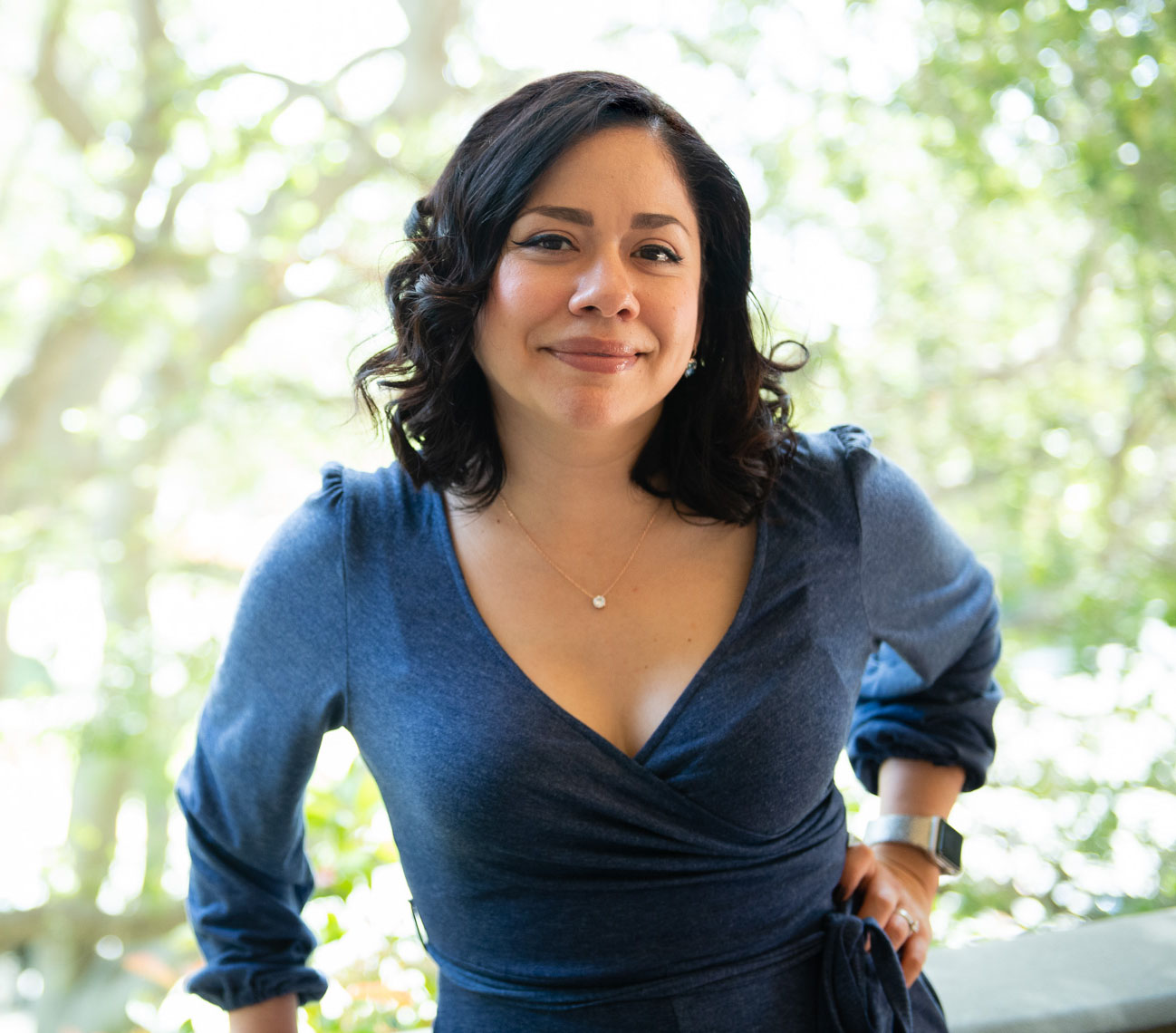
Graduate Office Address:
Requirements for the PhD. in Economics
The Requirements for the Ph.D. degree in Economics at the University of North Carolina at Chapel Hill, effective for the entering class of 2020, consist of successfully completing:
- Course Requirements
- Doctoral Written Examination
- Doctoral Dissertation
This document describes each of these requirements in detail.
1. Course Requirements
A doctoral candidate must complete 16 Ph.D.-level courses, at least two (2) semesters of the “Dissertation Workshop” related to their Field, at least one (1) semester of the “Dissertation Completion Seminar”. The two (2) semesters of the “Dissertation Workshop” count as one of the 16 Ph.D.-level courses to be completed. [1] At least 13 of the 16 courses must be from the Economics Department unless the student’s field of specialization specifically requires additional courses from other units or the student has permission from the faculty in the field. [2] All field courses must be approved both by faculty of the relevant field and the Director of Graduate Studies (DGS). By graduate school rules, a student becomes academically ineligible to continue in the program if a student receives a grade of F, F*, XF, or nine or more hours of L in the above-mentioned courses. Academically ineligible means that the student is out of the Ph.D. program. “Out of the Ph.D. program” is the wording we will use to denote this state in the rest of the document. [3]
1.1 Courses in the Fundamentals of Economics
The courses that provide the fundamentals of economics are:
- ECON 700 and 701: Quantitative Methods
- ECON 710 and 711: Graduate Microeconomics
- ECON 720 and 721: Graduate Macroeconomics
- ECON 770 and 771: Graduate Econometrics
ECON 700 is a daily math camp offered in the first three weeks of August, and counts as a standard core course (3 credit hours).
1.2 Courses in the Fields of Specialization
Each student selects a field of specialization.
At least three (3) courses in the field of specialization are required. Current examples of field of specialization courses are available on the webpage Field Specialization Requirements. Notice that these are only examples and new fields of specialization can be created by students under the supervision of a faculty member. The new field of specialization and the related three courses should be approved by the DGS. Examples of fields of specialization are:
- Econometrics
- Financial Econometrics
- Health Economics
- Industrial Organization
- International/Macroeconomics
- Labor Economics
- Microeconomic Theory
1.3 Courses in Supporting Fields
Supporting courses are chosen by the student in consultation with the DGS and other faculty. The supporting courses may be within the specialized field or in other areas.
1.4 Additional Course Requirements
Students are required to take at least two (2) semesters of the “Dissertation Workshop” related to their Field. Dissertation Workshops are typically taken starting in the third year of the Ph.D. program. In addition, students on the job market are required to take at least one (1) semester of the “Dissertation Completion Seminar”. The Seminar is taken in fall of the final graduation year, typically the fifth or sixth year of the Ph.D. program.
1.5 How to satisfy the 16-course requirement
In general, courses offered in the Ph.D. program in the department or approved by the DGS and taken in other departments or schools count toward satisfying the 16-course requirement. But there are the following exceptions:
- The “Dissertation Workshop” (ECON 920, 970, 985, 990) counts only ONCE even if you enroll for multiple semesters. Specifically, two (2) semesters of the “Dissertation Workshop” count as one of the 16 Ph.D.-level courses to be completed;
- The “Seminar in Teaching Methods” (ECON 805 and 806) does NOT count;
- The newly introduced workshop “Dissertation Completion Seminar” does NOT count.
2. Doctoral Written Examination
Students must pass written qualifying examinations in econometrics, macroeconomics, and microeconomics. Students must also pass the field paper requirement. Passing the qualifying examinations and the field paper satisfies the Graduate School requirement for the doctoral written examination.
2.1 Qualifying Examination requirement
All students who have successfully completed the eight (8) courses in the Fundamentals of Economics described in Section 1.1 are required to take qualifying examinations in econometrics, macroeconomics, and microeconomics. These examinations are administered around the first week of June, are three hours each and are meant to test if the core knowledge necessary to successfully proceed in the program has been acquired by the student. Exact dates will be communicated in advance by the DGS. The qualifying examinations requirement is satisfied by accomplishing the following:
- Out of the three (3) possible grades {P, L, F} (where P>L>F), obtain at least two (2) P and one (1) L over the three exams.
The exams are prepared and graded by a qualifying examinations committee nominated by the Chair and chaired by the DGS. The grades for all three exams are communicated jointly at the end of the grading process. If a student does not satisfy the criteria on the first attempt, another attempt is offered around the end of August. Exact dates will be communicated in advance by the DGS. On the second attempt, the student is required to retake the exams graded with an F and may decide to retake the exams graded with an L. For example, if a student accomplishes {P, L, F} on the first attempt, he has to retake the F and may decide to retake the L or not. As another example, if a student accomplishes {P, L, L} on the first attempt, she has to retake at least one of the two L’s but she is free to decide which one. She may also decide to retake both to diversify risk.
If a student does not satisfy the criteria on the second attempt, a third attempt is offered the following year at the same time and with the same exams administered to the new first-year Ph.D. students. The same criteria described for the second attempt apply to the third attempt. If a student does not satisfy the criteria by the third attempt, no additional chance to pass the requirement is offered and the student is out of the Ph.D. program. [4]
2.2. Field Paper requirement
The field paper requirement is satisfied by accomplishing the following steps:
- Identify a possible advisor for the field paper. The deadline to identify a possible advisor is June 1 of the summer between the second and third year of the Ph.D. program.
- Complete a first draft of the paper. The first draft of the paper is not a complete paper but a draft that states clearly motivation, objective and methodology. It also needs to demonstrate the student’s understanding of the relevant tools and literature in the field. The deadline to complete the first draft is the first week of classes of the third year Fall semester. During preparation of the draft, the student is expected to be in regular contact with the advisor and the advisor is expected to be responsive to the student.
- Complete the final draft of the paper. The final draft of the paper is a self-contained draft that accomplishes a specific objective and implements a specific methodology. It does not need to be polished at the level of a paper ready for publication but it should constitute a substantial building block for a research paper and/or a dissertation chapter. The deadline to complete the final draft is the last day of examination week of the third year Fall semester. During preparation of the draft, the student is expected to be in regular contact with the advisor and the advisor is expected to be responsive to the student.
The Field Paper committee is composed of the advisor chosen in step 1 plus two (2) additional faculty members. The advisor will also be the faculty of reference to enroll in ECON 994 ‘Doctoral Research and Dissertation’, which is required for all Ph.D. students after two years in the program. The field paper committee decides if the field paper requirements are satisfied. If the field paper committee decides that the final draft of the paper is not satisfactory, the student fails the requirement and has the possibility to resubmit a final draft. The deadline for resubmission is the last day of examination week of the third year Spring semester. If the resubmission is not approved by the committee, the student is officially out of the Ph.D. program. The Field Paper committee decisions are shared with the DGS and the student in a timely manner.
3. Doctoral Dissertation
The Doctoral Dissertation requirement is satisfied by accomplishing the following steps:
- The doctoral oral examination , or preliminary oral examination, consists of an evaluation of the thesis prospectus. The thesis prospectus (i.e. dissertation proposal) is discussed in front of the Dissertation committee. The student must successfully complete their prospectus by the end of the fourth year in the PhD program. If the student does not meet this deadline, to remain in good standing in the program they must submit a letter to the DGS that describes the current state of their research and a plan for timely completion of their prospectus. In this case, one faculty advisor must sign-off on the student’s research plan. If the student does not complete the prospectus by the end of the fifth year, they must exit the PhD program. If the student was unable to complete the prospectus by the end of the fifth year due to extraordinary personal or academic circumstances, they may petition to remain in the program by submitting an updated research overview and plan, signed by a faculty advisor. Students who defend their prospectus after the end of the fourth year must allow for one calendar year between the prospectus defense and graduation dates; research plans should directly acknowledge this requirement.
- The doctoral dissertation . Students work closely with members of the Dissertation committee in developing their dissertation. Consult the Graduate School Guide to Theses and Dissertations for additional information and style requirements. Doctoral dissertations are usually completed at the end of the fifth or sixth year in the program. Overall, a student has eight (8) calendar years from the date of first registration in the doctoral program to complete the doctoral degree. [5]
- The final oral examination, or final oral defense of the dissertation, consists of a discussion of the final dissertation in front of the Dissertation committee. The deadline for the defense with respect to graduation dates is provided by the graduate school here . At the same webpage, the Graduate School also provides additional instructions for filing for graduation.
The Dissertation committee is composed by five (5) faculty members. One of the five members is the advisor. Occasionally two faculty members may act as co-advisors. One of the five faculty members may be a scholar from outside the department or the university. If students do not pass step 1 or step 3, they have the possibility of one (1) retake at a time jointly agreed upon with the dissertation committee. If the retake is also not approved by the committee, the student is officially out of the Ph.D. program.
4. Additional Remarks
The requirements described in this document are consistent with the Graduate School requirements for a Ph.D. that can be found in the Graduate School Handbook and the Graduate Catalog . We invite students to be familiar with these requirements. In addition, students should also be aware of the general University Campus Policies , the University Policies for Research , and the Graduate School Policies on Academic Integrity and Ethics .
The expression “out of the Ph.D.” program used in the text refers to a student who cannot continue in the Ph.D. program. However, these students can appeal to be reinstated in the graduate program in order to obtain a Master’s degree. Requirements to obtain a Master’s degree are here .
[1] Additional enrollments in the workshop are expected throughout the time that a student is writing the dissertation.
[2] Credits transfer one to one from other units from outside the department. For example, a half credits/half semester course in the Economics Department at Duke transfers as half credits/half semester course at UNC.
[3] When special circumstances warrant, a student made academically ineligible under the conditions stated above may be reinstated in The Graduate School upon petition initiated through the student’s academic program. In our program, this typically means that the student can be reinstated in order to complete a terminal Master degree.
[4] A student out of the PhD program can petition to be reinstated in order to obtain a Master’s of Science in Economics. Please see here for requirements about the Master’s program.
[5] Under extenuating circumstances, a student in good academic standing may be warranted a one-year extension of the degree time limit. Please see the specific Graduate School policy available here for additional details.
- Research Centers
- Academic Programs
- Princeton University
- News & Activities
- Prospective Majors
- Major Requirements
- Course Selection
- Independent Work
- Other Rules and Grading Guidelines
- Economics Statistical Services (ESS)
- Minors and Programs
- Study Abroad and Internship Milestone Credit
- Funding, Research Assistant, and Career Opps
- Common Questions
Ph.D. Admissions
- Current Students
- Course Offerings
- Job Market and Placements
- Graduate Student Directory
- Common Admission Questions
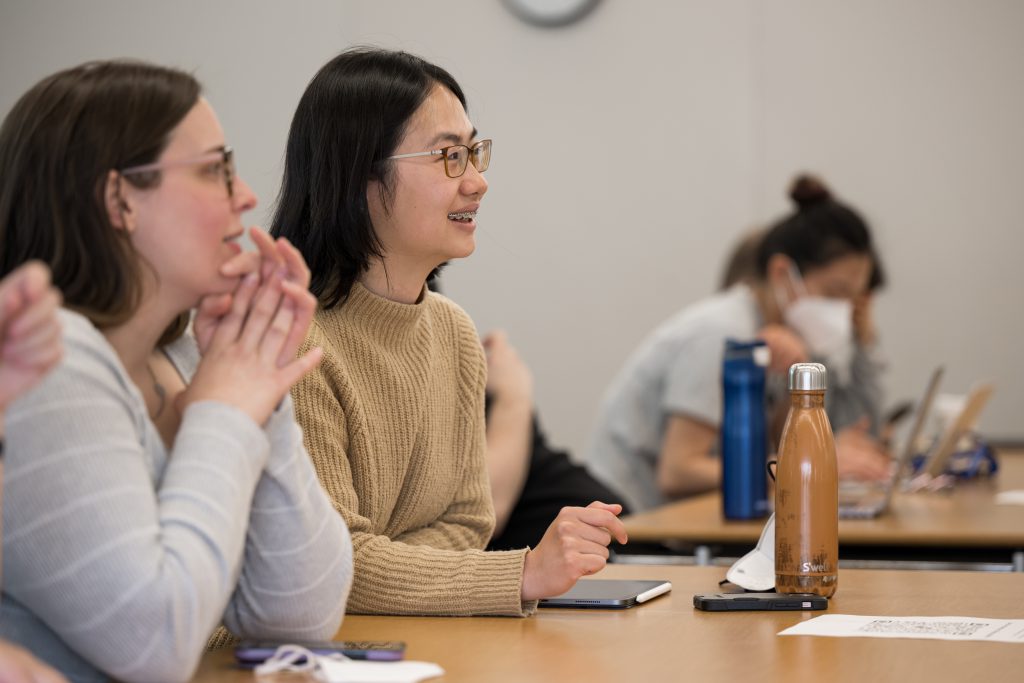
The Department of Economics is home to over 50 faculty members and approximately 140 enrolled graduate students. The department hosts weekly seminars with academics from around the world in a wide range of subfields within economics including behavioral economics, international economics, industrial relations, industrial organization, microeconomic theory, macroeconomics, finance, econometrics, development, political economy, and more. Graduate students are an integral part of these seminars and are welcome and encouraged to attend.
Members of the faculty interact with graduate students at weekly student workshops and seminars and are readily available to meet with students outside of class.
The Economics Department is located in the Julis Romo Rabinowitz (JRR) Building on Washington Road, which was dedicated in spring 2017. Post-generals graduate students are all provided office space in JRR. First- and second-year students have group offices with 12 unassigned desks in each. Prospective students can take a virtual tour of campus .

Please note: The Economics Department at Princeton does not offer a Master’s Degree. Students looking for information about the Master in Finance can learn more on the Princeton Bendheim Center for Finance website .
Admissions process
All applications are processed by the Graduate Admissions Office. The application for graduate admission is available here . The deadline to submit an application is December 1.
Admission decisions will be made in early March and students will be notified of the decision via email. Those students who are offered admission will be invited to visit the department for an admitted student visiting day.
Admissions requirements
Please visit the Graduate Admissions Office website for all admissions requirements. Information about the GRE and English language testing requirements can be found here .
Admissions questions: Who to ask
Prospective students can contact the Graduate Admissions Office with questions via email or by calling 609-258-3034. When sending emails to the Graduate Admissions Office, please do not send the same email to multiple Princeton email addresses. This will only cause a delay in response time.
- For questions regarding the Graduate School’s website, updates to an applicant’s contact information, or fee waivers, please contact [email protected] . General questions about the Graduate Admissions Office should also be directed to this address.
- For questions regarding GMAT, GRE, IELTS and TOEFL tests, please contact [email protected] .
- For questions regarding a submitted application, including application requirements that were not previously uploaded to that application, please contact [email protected] . Please review these tips before sending emails to this account.
For questions regarding non-degree programs, please contact [email protected] .

Have questions about applying? Please check our FAQ page before emailing us at [email protected] . We partner with Harvard Economics to connect prospective students from underrepresented groups with graduate student mentors. Details of this Application Assistance and Mentoring Program are available below.
Application requirements
The application to our doctoral program is open annually from September 15-December 15 for admission the following September. The application for September 2024 admission is now closed.
Your application is considered complete when you have successfully submitted the following requirements by the December 15 application deadline:
- Online application
- $90 application fee
- Scanned copy of college transcripts
- Three letters of recommendation
- TOEFL, IELTS, or Cambridge English Qualification (C1 & C2) test score (any one) for international students whose native language is not English
- The GRE is required as part of applications for the 2025-2026 cycle (for September 2025 admission)
To request a fee waiver, please complete MIT's application fee waiver form . You should carefully review the eligibility criteria prior to applying. A representative from MIT’s Office of Graduate Education will be in touch about the outcome of your request.
Transcripts
Please upload one copy of each transcript from all universities you have attended. If you're admitted to the program, we'll require you to have an official copy of your transcript(s) sent to us from the university's registrar. Your transcript will be verified upon receipt and any discrepancy between the transcript you uploaded and the official transcript will result in a withdrawal of our offer of admission.
Letters of recommendation
Letters must be submitted/uploaded by the letter writers by December 15. Please send the email request to your letter writers via the 'Letter Status' section in your application.
TOEFL, IELTS, or Cambridge English Qualification scores
International students whose first language is not English are required to submit English language proficiency test scores unless they are a US citizen or permanent resident. The department will also waive the requirement for international non-native speakers of English who have spent three or more years studying in an accredited school or university where English is the language of instruction. (Please note: verification of the institution’s language of instruction may be requested.)
We accept the following test scores:
- Cambridge English C1 Advanced
- Cambridge English C2 Proficiency
If you meet the criteria for a waiver, you can make a request to waive the English proficiency exam requirement on the online application, under the "test scores" section.
TOEFL, IELTS, and Cambridge English Qualification scores are valid or accepted for two years. Scores that expire while an application is under review will be considered valid.
Submitting your scores
Your online application will prompt you to attach a scanned copy of your test scores. Your scores must also be sent directly to MIT from ETS, IELTS, or Cambridge. MIT's school code for the TOEFL is 3514. The TOEFL code for the Department of Economics is 84. IELTS and Cambridge do not require a code. Please enter "Massachusetts Institute of Technology- Graduate Admissions."
Official scores must be received from ETS, IELTS, or Cambridge by December 15. Please take your proficiency exam of choice by November 30 to allow for proper reporting time. If your score report arrives shortly after the deadline, it will be accepted, but your application may not be reviewed until your scores are received.
Minimum score requirements
The minimum requirement for the TOEFL is PBT: 600, iBT: 100. The minimum requirement for the IELTS is 7. The minimum requirement for the Cambridge English Qualifications is a CEFR score of 185.
Your online application will give you the option to attach a scanned copy of your test scores or a screenshot of the scores from the ETS website. You can also send a score report directly to MIT from ETS. MIT's school code for the GRE is 3514. The code for the Department of Economics is 1801.
To allow for your scores to arrive by the application deadline, you should take the GRE by November 30 to allow for reporting time.
Personal statement (optional)
We encourage applicants to include a statement of objectives/personal statement with their application, though it is not required. The statement is an opportunity to explain what makes you a good candidate for the program. You should describe why you wish to attend graduate school, what you would like to study, and any research experience. Describe one or more accomplishments you are particularly proud of that suggest that you will succeed in your chosen area of research. You can also share any unique perspective or life experience that would contribute to the program. Statements are typically two single-spaced pages.
Economics Mentoring Program
Many students interested in an economics PhD experience disparate degrees of support in the application process. The Economics Mentoring Program (EMP, formerly known as AAMP) aims to mitigate these gaps by helping students from underrepresented groups connect with graduate student mentors in the economics PhD programs at Duke, Harvard, MIT, and Stanford. These mentors can provide:
- Advice on graduate school and fellowship applications, including questions about the application process and feedback on application materials.
- Information about economics research, life as a PhD student or in an academic career, for students who are deciding whether a PhD in economics is the right choice for them.
The EMP aims to increase the pipeline of diverse talent in economics PhD programs and welcomes participation from all groups underrepresented in economics, including but not limited to: Black, Hispanic-Latin, Native American, low-income, and LGBTQ+ students, women, students with disabilities, and students who are the first in their families to go to college. The EMP welcomes participation among students at various stages of their economics studies, including undergraduates and college graduates. The EMP is open to students who are curious about the academic economics experience and interested in figuring out if it’s right for them.
Interested participants should fill out the application linked below. We will accept applications until July 22, 2024. Mentorship will begin over the summer and continue through Fall 2024. Mentees who prefer to meet for a single “coffee chat” may indicate their preference on the form. We will do our best to match all interested applicants with a mentor; however, demand may exceed the availability of mentors.
Please note that the EMP is a volunteer-based, student-run program. This program is not considered part of the admissions process for the economics PhD at Duke, Harvard, MIT, or Stanford nor will any student's participation in the EMP be considered by the graduate admissions committee at any school.
Please direct any questions to [email protected]
To join the program, please click the link below to fill out the form. For more information, please visit our website.
EMP application form: https://forms.gle/tWvNRXRJQWEHhFn16 We will accept applications until July 22, 2024
Website: www.economicsmentoringprogram.com
- Utility Menu
44d3fa3df9f06a3117ed3d2ad6c71ecc
- Administration
econ-hero-6.jpg

The doctoral program in Economics at Harvard University is one of the leading programs in the world. Supported by a diverse group of faculty who are top researchers in their fields and fueled by a vast array of resources, the PhD program is structured to train and nurture students to become leading economists in academia, government agencies, the technology industry, finance and banking, and global policy organizations.

Harvard University and the Department of Economics are regularly ranked amongst the top programs in the world, and the consistency of success among our graduates is inspiring. We have educated several foreign heads of state, Nobel Prize Winners, Clark Medal Winners, MacArthur Fellowship Recipients - many of whom have returned to Harvard to offer their expertise and brilliance in shaping and nurturing our students. Learn more about where we place our graduates and explore our Program to find out if a PhD in Economics is a good fit for you.

Program Requirements
As a PhD student in the Economics program, students will spend the first two years in the program engaged in rigorous coursework designed to develop a foundational understanding of economics. In the following years, students transition to research under the guidance of strong faculty mentorship and participate in field workshops. In the final year, students conduct independent research and complete a dissertation.

The department of Economics at Harvard University is committed to seeking out and mentoring scholars who wish to pursue a rigorous and rewarding career in economic research. Our graduates are trailblazers in their fields and contribute to a diverse alumni community in both the academic and non-academic sectors. We invite you to learn more and apply to the PhD program in Economics.

Financial Support
Students have access to a variety of funding and financial support opportunities.
- Research Funding
- Teaching Fellowships and assistants
- Additional external and internal resources
Learn more about financial support
Upcoming Events
Econ 3010 alberto alesina graduate student workshop in political economics and culture, location: .
Maxim Alekseev (Harvard University) "Trade Policy in the Shadow of Conflict: The Case of Dual-use Goods."... Read more about ECON 3010 Alberto Alesina Graduate Student Workshop in Political Economics and Culture
Seminar in Econometrics
Evan Munro (University of California, Berkeley) " Causal Inference under Interference through Designed Markets "... Read more about Seminar in Econometrics
Seminar in Economic Theory
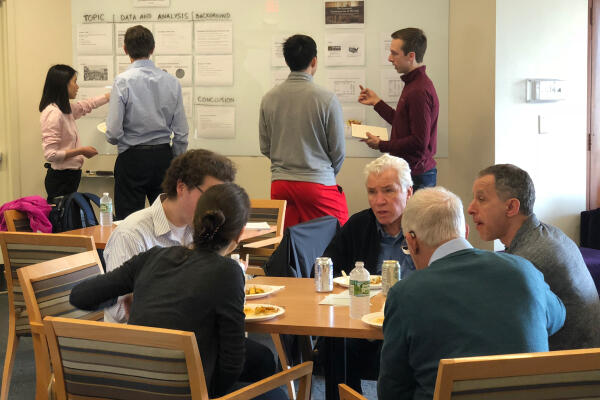
View all Workshops

View all Seminars

Ph.D. in Economics
The Ph.D. program in the Department of Economics at Columbia University trains students to do cutting edge research in economics. Students in our program do research in all major areas of economics including microeconomics, macroeconomics, econometrics, international economics, labor economics, public finance, industrial organization, development economics, and urban economics. Our department provides strong training both in theoretical economics and in applied and empirical economics. The Ph.D. program is primarily designed for students that are interested in pursuing a career in teaching and research within academia but is also useful for student interested in certain positions within governments, research organizations, or private businesses.
The first two years of our Ph.D. program is largely devoted to rigorous coursework. After the second year, however, students devote most of their time to their own research under the supervision of faculty advisors. Students in our program generally complete their Ph.D. in 5 or 6 years.
Admission to the Ph.D. program is highly selective. We receive approximately 1,000 applications each year for an incoming class of roughly 25 students. We place a high value on attracting the very best minds, and recruiting members of groups who will both enhance the diversity of research in the field and contribute to the diversity of the university’s academic and professional community.
The Ph.D. program has a long and illustrious history. Alumni of the program include some of the most distinguished economists of the last century – including Nobel Prize winners Kenneth J. Arrow, Milton Friedman, Simon Smith Kuznets, and William S. Vickrey.
- Program Description
- Admissions Information
- Placement Information
- Student Life
- Frequently Asked Questions
- Program Requirements
- Announcements
- Graduate Student Appointments
- Office Hours
- List of 2nd Year Fields
- PhD Administrative Forms
- Job Market Candidates
- Honors and Prizes
- 1st Year Students (2024)
- 2nd Year Students (2023)
- 3rd Year Students (2022)
- 4th Year Students (2021)
- 5th Year Students (2020)
- 6th Year Students (2019)
- Bridge to the Ph.D. Program
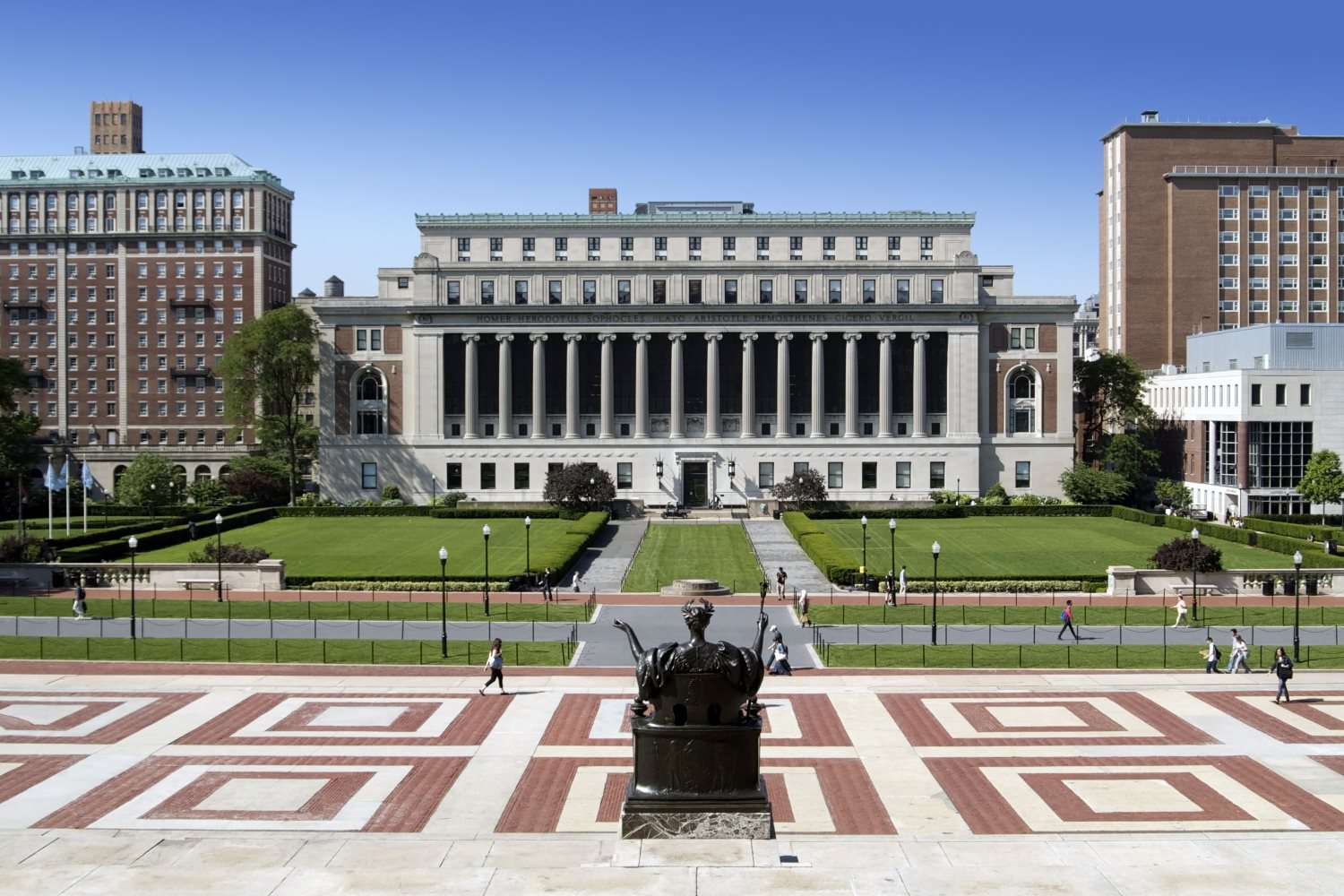
1022 International Affairs Building (IAB)
Mail Code 3308
420 West 118th Street
New York, NY 10027
Ph.D. Program
Make an impact: The intellectual rigor from researchers associated with Yale Economics drives innovations in domestic and international policy.

- Requirements
Yale's Department of Economics offers a challenging and rigorous academic program, a distinguished and accessible faculty, and a friendly, supportive environment for study.
Our core teaching faculty of 66 is supported by a diverse group of visiting professors and graduate student teaching assistants, making it one of the largest economics departments in the United States with one of the highest teacher/student ratios for the 130 Ph.D. students in residence.
The Department of Economics also has close ties with professional schools in related fields, such as the Yale School of Management, the Yale School of the Environment, and the Yale School of Public Health, where many of its secondary faculty members teach. It also works with affiliated centers, including the Cowles Foundation for Research in Economics, the Economic Growth Center, and the newly created Tobin Center for Economic Policy .
- The Program
- Prospective Students
- Milestones and Timeline
- Student Resources
- Student Directory
Our Program
Yale's economics faculty embraces a broad range of research and teaching interests. Courses and seminars span a wide spectrum of economics, from dynamic structural models to field experiments. Our students apply econometric and data analytic methods to a variety of subjects in macroeconomics, labor economics and finance. Our courses examine critical economic policy issues, including antitrust and environmental regulation. Our focus is global, spanning the United States and developed economies to the developing nations of Latin America, Asia and Africa. Whatever your interest, our faculty is ready to guide you through a wide offering of more than a hundred regular courses, seminars or workshops, combined with individually tailored reading and research courses to best prepare you for your Ph.D. research and dissertation.
Our faculty is eclectic in methodologies and views of economics. There is no Yale dogma or school. You will acquire a critical perspective on the full range of approaches to macroeconomics. You will be well trained in neoclassical theory and in the theory of public choice, externalities and market failures. You will master the skills of sophisticated modern econometrics and understand pitfalls in its applications. You will gain respect for the power of contemporary mathematical models and also for history and for the insights of the great economists of the past.

Fields of Study
Important dates.
Aug. 19, Mon. GSAS New Student Orientation week begins.
Aug. 26, Mon. Add/drop period opens, 8:00 am.
Aug. 28, Wed. Fall-term classes begin.
Full calendar


About the Ph.D. Program
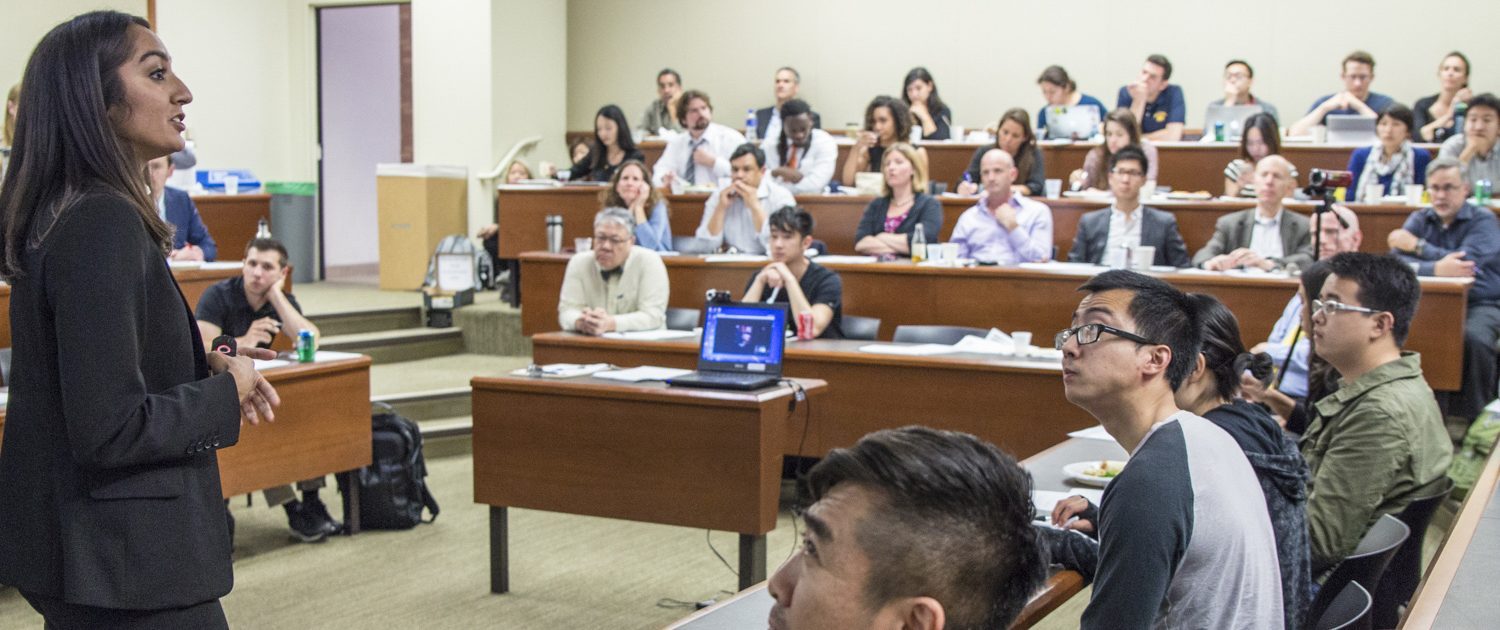
The Ph.D. Program in Economics at UCLA prepares students for careers as economists in academia, business and government. The program combines rigorous work in economic theory and careful study of real-world problems and institutions. Graduates from this program work at major universities around the world, national and international government agencies, banks, research centers and in private businesses. Some of our graduates have achieved great prominence, such as William Sharpe , who earned both his B.A. and Ph.D. degrees at UCLA, and was co-recipient of the 1990 Nobel Prize in Economics for his work on the capital asset pricing model.
The department includes internationally recognized scholars in economic theory, econometrics, and all the major applied fields. These outstanding scholars form one of the foremost departments of economics in the world.
The Economics Department is situated within one of the world’s most youthful and vibrant universities. Founded in 1919, UCLA first developed into a major university in the 1950’s. After so short a history, the university was ranked second in the United States among public research universities by the Conference Board of Associated Research Councils in 1982. Thirty-one of its Ph.D. programs are currently ranked in the top 20 in their field–third best in the nation.
The Ph.D. is the degree objective of the graduate program. This degree is awarded to students who demonstrate professional competence by passing written qualifying exams and by completing a major piece of individual research (the Ph.D. dissertation).
Preparation for the qualifying exams through coursework and independent study occupies most student time for the first two years. Thereafter the focus shifts to independent research and finally to the writing of a Ph.D. dissertation. Research in progress by our graduate students as well as our faculty is presented at workshops that meet weekly throughout the academic year. Currently, the Dept. has workshops in Theory and Mathematical Economics, International and Development Economics, Labor and Population Economics, Business Organization and Regulation Economics, Economic History, Econometrics, and Monetary Theory. In addition, many graduate students work as research or teaching assistants for faculty members. The normal time to degree is six years.
This degree program classifies as STEM (CIP Code 45.0603: Econometrics and Quantitative Economics).

UCLA Department of Economics
8283 Bunche Hall Mail Stop: 147703 Los Angeles, CA 90095
Campus Resources
- Academic Calendar
- Maps, Directions, Parking
- University of California
- Terms of Use
- Injury & Illness Prevention Program
Internal Resources Manager’s Manual Admin Login Webmail (O365 Server) Contact Webmaster
- About the Department
- Administration
- Board of Visitors
- Department Newsletters
- Ladder Faculty
- Courtesy Faculty
- In Memoriam
- Recent Publications
- Research Spotlight
- Overview of Majors
- Declare our Majors
- Degree Planning
- Benjamin Graham Value Investing Program
- Enrollment Procedures
- Frequently Asked Questions
- Student Wellness & Community
- Department of Economics Commencement 2024
- Course Descriptions
- Economics Class Schedule
- Learning Objectives
- Common Syllabus
- Non-UCLA Course Credit
- Econ Summer Courses for 2024
- Departmental Honors
- Departmental Scholar
- Departmental Scholarships
- Career Pathways
- Fellowships
- Career Center
- Internships
- Research Opportunities
- Preparing for a Ph.D. in Economics
- EDI Courses in Economics
- EDI Research
- EDI Resources for Students
- Incoming Undergraduates
- Why Study Economics?
- Freshmen Information
- Transfers Information
- Economics Courses
- Graduate Handbook
- Graduate Student Awards
- Standards and Procedures
- Second Year
- Thesis Writing
- TA Resources
- Job Market Prep
- Grad Econ Association
- Computing Resources
- Placement History
- Job Market Candidates
- Graduate Counseling Office
- Commencement videos
- Alumni Career Engagement
- UCLA Alumni Affairs
- Update Your Information
- Alumni Interviews
- Women in Business
- Proseminars
Department of Economics

- Graduate Courses
- Program Requirements
- For Admitted Students
- Funding and Financial Aid
- For Current Students
- Recent Placements
The rigorous PhD economics program at Johns Hopkins is among the best in the nation. With its world-class faculty, individualized attention, and small classes, the doctoral program is the centerpiece of the Department of Economics. From financial analysis to applied research, students are well-prepared to be leaders in the field.
The department is dedicated to maintaining strong research and teaching cores in applied microeconomics, economic theory, macroeconomics, and econometrics. Faculty members are experts in their fields, and they are actively involved in thesis supervision and research seminars . The unique Hopkins difference is the direct interaction and one-on-one attention students receive from faculty. Such attention opens the door to myriad opportunities for students to conduct groundbreaking research, apply complex economic theories, and make educated financial analyses and predictions.
Student Life
Graduate students enjoy a diverse social life outside of the department’s rigorous curriculum and their individual research interests. Faculty and students – from both inside and outside the department – have ample opportunities to spend time together socializing and discussing their studies.
In addition to frequent student-planned happy hours, social outings, and local events, the Department of Economics and the JHU Graduate Representative Organization host many functions throughout the year.
- At the beginning of the fall semester, the Department of Economics hosts a welcome dinner and party to encourage new students to meet their peers, older students, and faculty.
- The department throws an annual holiday party immediately following completion of the first term, as well as an end-of-year barbecue to celebrate the completion of the spring semester.
- JHU sponsored coffee “happy hours” offer graduate students opportunities to meet people from outside their department.
- Intramural sports are popular among graduate students at Hopkins, and the economics department often forms teams that compete against other departments.
Students and faculty members often know each other by name before taking classes together, and first-year students enjoy straightforward access to faculty members and their more experienced peers. This collegial atmosphere makes for an easy transition into graduate life and comfortable communication once research begins in earnest.
Economics across JHU Schools
Carey business school.
The Johns Hopkins Carey Business School is the graduate business school of Johns Hopkins University and offers full-time and part-time programs leading to the Master of Business Administration and Master of Science degrees. The School has a number of distinguished economists who interact with the faculty and graduate students in the Department of Economics.
School of Advanced International Studies
The Paul H. Nitze School of Advanced International Studies is a graduate school of Johns Hopkins University based in Washington, D.C., United States, with campuses in Bologna, Italy, and Nanjing, China. It is consistently ranked one of the top graduate schools for international relations in the world. The economists at the school interact with the faculty and graduate students in the Department of Economics.
Advanced Academic Programs Applied Economics
The Johns Hopkins Division of Advanced Academic Programs is a division of the Krieger School of Arts and Sciences in Washington DC which offers high-level graduate-level education in Applied Economics, with a variety of Masters Degrees designed to build on the intellectual strength and educational requirements of professional adults.
Department of Economics

Ph.D. Admissions
The ph.d. in economics.
The Ph.D. program in economics admits between 8 and 12 students per year and prepares them for a successful career in academia, government, international organizations, or the private sector. In the first year, students take classes in microeconomics, macroeconomics, and econometrics, as well as mathematical economics and economic history. In the second and third year, students take 21 credit hours of specialized classes in at least two of the following concentrations:
- Microeconomic Theory
- Macroeconomic Theory
- Econometrics
- Economic Development
- Economic History
- Health Economics
- Industrial Organization
- International Economics
- Labor Economics
- Money and Financial Institutions
- Public Economics
Students can petition to combine at least two related classes to a nonstandard concentration.
Applying to the Program
The application deadline for the Ph.D. program is December 1st for the coming fall semester. Successful applicants have strong quantitative backgrounds and a passion for research in economics. The application fee is $95.00 upon submission.
Please direct all Ph.D. admission inquiries to [email protected] .
Qualifications
Our incoming students usually have an undergraduate degree in economics and/or mathematics, with significant quantitative and math-intensive course experience. Many international applicants have a master’s degree. Research experience (such as an undergraduate or master’s thesis, or work as a research assistant) is a plus.
- Required: One year of calculus, one semester of statistics, and intermediate-level courses in microeconomic theory and macroeconomic theory.
- Strongly recommended: Courses in linear algebra, differential equations, real analysis, and econometrics.
Information to Submit
Base Requirements
- Self-reported/unofficial or official GRE scores
- Unofficial transcripts
- 3-5 letters of recommendation
English Language Proficiency Requirements
- Test of English as a Foreign Language (TOEFL), minimum score 89
- International English Language Testing System (IELTS), minimum score 7.0
- Applicants to the Graduate School, regardless of citizenship, must either meet our waiver criteria or submit proof of English language proficiency. The online application will not require you to submit a language score if you meet the criteria for an exemption: you (will) have an equivalent degree from an English-language university in Australia, Canada, Ireland, New Zealand, Singapore, or the United Kingdom. See the Gradute School admissions page for more information about the English Proficiency Waiver: Application Requirements | Graduate School | Vanderbilt University
Statement of Purpose
In your statement of purpose, tell us how your studies so far have prepared you for a Ph.D. program, and share what fascinates you about research in economics.
Visiting Campus
Campus visits are offered to everyone admitted to the program. Visits consist of a half-day of individual meetings with faculty members and students, plus lunch.
Q: What test scores do admitted candidates usually have on the GRE?
A: Applicants often overestimate the importance of GRE scores for Ph.D. applications. The GRE tests whether you can do high school math quickly and correctly, as well as your vocabulary. Scores below a certain level (say, below 155 verbal and below 161 quantitative) tend to indicate problems, while very high scores do not necessarily guarantee that you are fully prepared for a Ph.D. program in economics.
For candidates who satisfy these thresholds, we look primarily at their preparation for a Ph.D. program in terms of how they did in the challenging courses they took in both advanced economics and math, rather than going only by their specific GRE scores.
Q: Do you have a minimum TOEFL or IELTS score?
A: The Graduate School recommends a minimum TOEFL score of 89 and a minimum IELTS of 7.0
Q: I am a native English speaker, do I have to submit proof of English proficiency?
A: All applicants to the Graduate School, regardless of citizenship, must either meet the waiver criteria or submit proof of English language proficiency. See the Graduate School requirements page for more information: Application Requirements | Graduate School | Vanderbilt University
Your Vanderbilt
- Current Students
- Faculty & Staff
- International Students
- Parents & Family
- Prospective Students
- Researchers
- Sports Fans
- Visitors & Neighbors
Quick Links
- PeopleFinder
- ALEKS Placement Exam Guidelines
- PhD Students on the Job Market
- News & Events
- Alumni Outcomes
- Donate to the Department

Department of Economics
Columbian College of Arts and Sciences
- Applied Economics Newsletters
- Economic Opportunities in D.C.
- BA in Economics
- BS in Economics
- BA or BS in Economics/MPP
- Minor in Economics
- Course Offerings
- Undergraduate Economics Open House
- ALEKS Math Placement Test
- Declaring a Major / Minor
- Registration
- Transfer Credit Requests
- CPT Letter Requests
- Departmental Special Honors
- Undergraduate Prizes
- Economics Honor Society
- Student Organizations
- Mentorship Program
- Letter From the Director
- MS Curriculum
- MS Admissions and Funding
- Combined MS and Graduate Certificate Options
- FAQs for Prospective MS Students
- Career Resources and Alumni Outcomes
- International Student Resources
- Professional Organizations and Opportunities
- Applied Economics Instructors
- World Bank Data Lab and MITx MicroMasters
- FAQ for Prospective PhD Students
- Third Year Paper Proposal
Dissertation Guidelines
- Graduate Student Resources
- Department Seminars
- Faculty Research Fields
- Research Centers and Programs
- Tenure Faculty
- Teaching Faculty
- Research Faculty
- PhD Students


PhD in Economics

Producing about 10 graduates each year, the PhD in Economics program is a close community of scholars from around the world. Coursework ranges from microeconomics, macroeconomics and econometrics to the economics of industry and labor.
PhD students engage in research with faculty as research assistants and publish their own work in respected journals including Economics Letters , Journal of Macroeconomics and European Economic Review .
The PhD in Economics is a U.S. Department of Homeland Security STEM-designated degree program.
Apply to GW
Request More Information
PhDs on the Job Market
PhD Graduate Placements
"I greatly benefitted from the doctoral program at GW, both as an economist and as a researcher. The program played an instrumental role in advancing my understanding of economic theory and empirical methodologies, cultivating my research interests and honing my ability to apply these skills in real-world settings. I now work as a development economist at a multilateral organization, where I conduct research on topics like inequality, unemployment, property rights and social protection and contribute to evidence-based policy making."
Abhilasha Sahay PhD '20
Program Timeline
The program is divided into two stages:
- Pre-candidacy stage: The student completes coursework and general examinations in microeconomic and macroeconomic theory as well as a research paper proposal.
- Candidacy stage: The student participates in a dissertation seminar, completes the written dissertation and conducts an oral defense.
The PhD program is offered primarily on a full-time basis, and students are expected to complete the degree in five to six years. Occasionally, the department will admit highly qualified part-time doctoral students.
View detailed year-by-year timeline of program rules and requirements .
Degree Along the Way Options
Students in the PhD program can earn either a Master of Science (MS) in Economics or a Master of Philosophy (MPhil) in Economics degree while pursuing the PhD degree.
Students in good standing may apply for the MS once they have completed the 30 required credits: ECON 8301, 8305 and 8375; two courses chosen from 8302, 8306 and 8376; and five 8000-level economics courses. Students may apply for the MPhil degree after they have successfully entered Candidacy.
Degree Along the Way Application
Course Requirements
Pre-candidacy requirements
Pre-candidacy requirements include satisfactory completion of 48 credits, including 18 credits in required courses and 30 credits in elective courses. Students must also earn a grade of Pass or Pass with Distinction on each part of the general examination, as outlined below.
| Code | Title | Credits |
|---|---|---|
| Required | ||
| Core theory and econometrics courses | ||
| ECON 8301 | Microeconomic Theory I | |
| ECON 8302 | Microeconomic Theory II | |
| ECON 8305 | Macroeconomic Theory I | |
| ECON 8306 | Macroeconomic Theory II | |
| ECON 8375 | Econometrics I | |
| ECON 8376 | Econometrics II | |
| Research development course | ||
| ECON 8397 | Paper Proposal Seminar (does not count toward the 48 credits of required and elective courses necessary for the degree) | |
| Electives | ||
| Students must complete 30 credits in 8000-level or approved 6000-level courses. At least 21 of these credits should be 8000-level ECON courses. Research credits such as those taken in ECON 8998 or ECON 8999 do not count as elective credits in pre-candidacy, nor does ECON 8397. ECON 8997 does count toward the 30 elective credits but not toward the 21 required 8000-level ECON elective credits. | ||
| In cases where knowledge outside the discipline of economics or outside Department of Economics (ECON) course offerings is critical to the student's research field, students may take up to 6 credits in pre-candidacy coursework outside the department, with departmental approval. In exceptional circumstances, a student may take 9 such credits, with departmental approval. | ||
| Program option selection and curriculum requirements | ||
| By the end of August in the second year, students should indicate whether they are selecting the microeconomics option or the macroeconomics option. Subsequently, students must complete at least 12 elective credits in the following courses, corresponding to their chosen option | ||
| Code | Title | Credits |
|---|---|---|
| Macroeconomics courses | ||
| ECON 8307 | Macroeconomic Theory III | |
| ECON 8323 | Monetary Theory and Policy I | |
| ECON 8324 | Monetary Theory and Policy II | |
| ECON 8337 | Environmental Economics | |
| ECON 8377 | Econometrics III | |
| ECON 8378 | Economic Forecasting | |
| ECON 8379 | Laboratory in Applied Econometrics | |
| ECON 8381 | International Trade Theory | |
| ECON 8382 | International Finance and Open-Economy Macroeconomics | |
| ECON 8383 | International Financial Markets | |
| ECON 8395 | Advanced Special Topics | |
| Microeconomics courses | ||
| ECON 8303 | Microeconomic Theory III | |
| ECON 8337 | Environmental Economics | |
| ECON 8341 | Labor Economics I | |
| ECON 8342 | Labor Economics II | |
| ECON 8345 | Industrial Organization I | |
| ECON 8346 | Industrial Organization II | |
| ECON 8351 | Development Economics I | |
| ECON 8352 | Development Economics II | |
| ECON 8357 | Regional Economics | |
| ECON 8358 | Urban Economics | |
| ECON 8363 | Public Finance I | |
| ECON 8364 | Public Finance II | |
| ECON 8377 | Econometrics III | |
| ECON 8379 | Laboratory in Applied Econometrics | |
| ECON 8381 | International Trade Theory | |
| ECON 8383 | International Financial Markets | |
| ECON 8395 | Advanced Special Topics | |
General Examination
The general examination has three parts: two preliminary examinations taken in the first year—one in microeconomic theory and one in macroeconomic theory—and a research paper due in the sixth semester. To pass the general examination, students must earn a grade of Pass or Pass with Distinction on both preliminary examinations and on the research paper.
Students who earn a GPA of 3.0 or above in the microeconomic theory course sequence ( ECON 8301 and ECON 8302 ) are considered to have earned a grade of Pass on the preliminary examination in microeconomic theory; students who earn a GPA of 3.0 or above in the macroeconomic theory course sequence ( ECON 8305 and ECON 8306 ) are considered to have earned a grade of Pass on the preliminary examination in macroeconomic theory. Other students must sit the preliminary examinations at the end of the first year.
Students who do not earn a grade of Pass or Pass with Distinction on both preliminary examinations may, with departmental approval, retake one or both examinations before the start of the following semester. Both preliminary examinations must be passed by the second attempt.
Students are also required to earn a grade of Pass or Pass with Distinction on the research paper, which constitutes the second half of the general examination. Students must submit the research paper and deliver a presentation of the content to at least two faculty members for evaluation by the end of their sixth semester in the program. (Part-time students may submit the research paper later, subject to departmental approval.) Students who do not pass the research paper by the end of the sixth semester will receive an academic warning and must pass it by the end of the following semester.
Post-candidacy requirements
Post-candidacy requirements include successful completion of 24 credits at the 8000 level, the formulation of a dissertation proposal, a formal presentation of the proposal by the student to a prospective dissertation committee for approval (where approval of the proposal formalizes the creation of the dissertation committee), and completion of a dissertation that demonstrates the candidate's ability to do original research as determined by the dissertation committee.
Students should successfully defend the dissertation proposal by the end of the eighth semester in the program. Students who do not successfully defend the dissertation proposal by the deadline will receive an academic warning and must successfully defend the proposal by the end of the following semester. Part-time students may defend later, subject to departmental approval.
The 24 credits must include a minimum of 6 credits in ECON 8999 Dissertation Research .
Once a student successfully completes the 72 credits required for the program, they must register for 1 credit in CCAS 0940 Continuing Research - Doctoral each subsequent fall and spring semester until they have successfully defended their dissertation to the dissertation oral examination committee, thereby completing the degree program.
Students may apply for the master of philosophy (MPhil) degree after successfully defending a dissertation proposal.
Time limits
The pre-candidacy stage must be concluded within six semesters of matriculation in the program; part-time students may conclude the pre-candidacy stage within ten semesters of matriculation, subject to departmental approval. Upon successful completion of pre-candidacy, students are considered for admission to candidacy, i.e., the dissertation stage. The dissertation stage must be completed within five years of entry into candidacy, or within eight years of matriculation in the program, whichever comes first.
- Faculty Intranet
DEPARTMENT OF ECONOMICS
- Prospective Ph.D.s
Prospective Ph.D. Information
Northwestern's Ph.D. program in Economics owes its international reputation to an outstanding faculty, a well-organized program of study, extensive student-faculty interaction, and an excellent record of recruiting, training, and placing talented graduate students.
In addition, the Department of Economics and the Finance Department in the Kellogg School of Management offer a joint full-time Ph.D. program in Financial Economics .
Program details
Students generally complete the Ph.D. program in four to six years. Please note that the department does not admit students for a terminal MA degree. An MA degree is only available to Economics Ph.D. students who have successfully completed the first year of the doctoral program, and to students enrolled in other doctoral programs at Northwestern.
The Ph.D. program has approximately 120 students in residence and an average entering class of 25 each year.
The department actively supports the placement of Ph.D. graduates in positions at prestigious universities, government agencies and private corporations. See where past graduates have been placed.
Application details
- Financial aid
- Student housing
Our fields of study:
- Development Economics
- Econometrics
- Economic History
- Health Economics
- Financial Economics
- Industrial Organization
- Labor and Public Economics
- Macroeconomics
- Microeconomic Theory
Why Northwestern?
The department of economics at northwestern university is among the best in the world..
Located on a scenic lakefront campus in Evanston, Northwestern University offers the best features of small-town and large-city living. There is easy access by public transportation to the cultural, sporting and recreational opportunities in one of the world's greatest cities.

Find more reasons to choose Northwestern.

- Programs Overview
- Joint Finance PhD Program
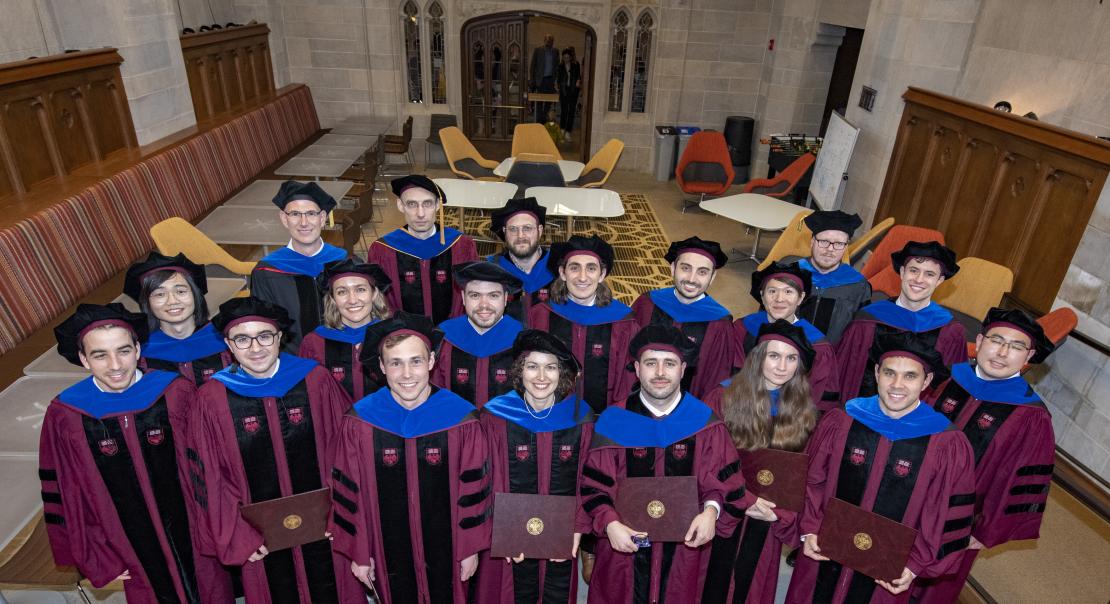
Joe Sterbenc
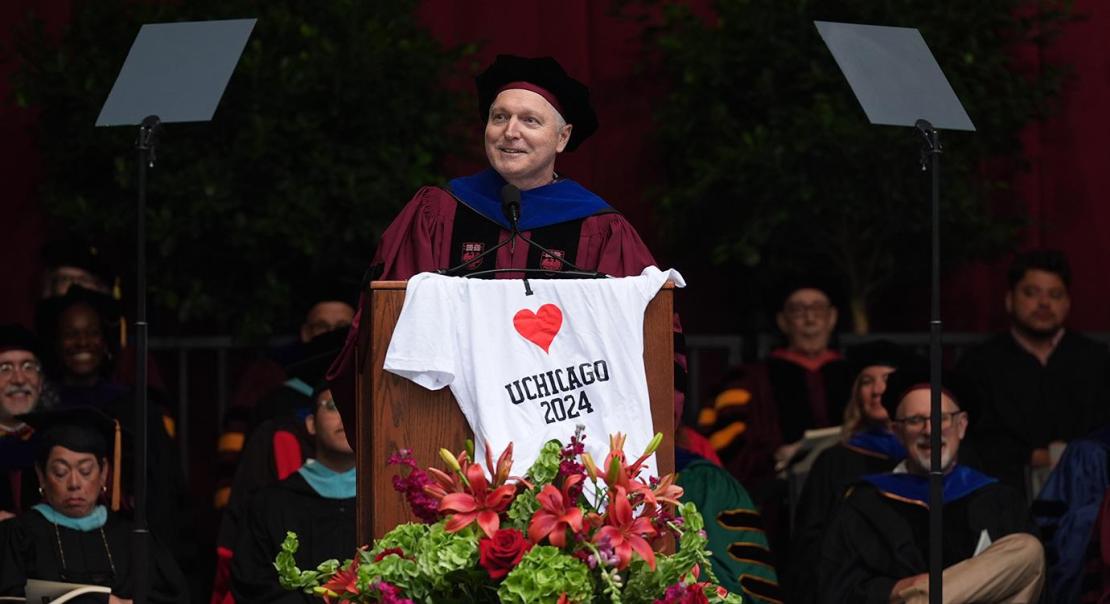
The Kenneth C. Griffin Department of Economics is one of the world's foremost economics departments, and its faculty are renowned for their seminal contributions to the field, achievements recognized with numerous Nobel Prizes, Clark Medals, and other distinctions. Students admitted to doctoral studies research, interact daily with the faculty, as well as fellow graduate students, and pursue their own interests, thus furthering their own scholarship and research, ultimately continuing to shape the discipline itself.
The Department of Economics receives 600-700 applications for an entering class of 20-25 students per year. The number of well-qualified applicants exceeds the number of offers we can make. Nevertheless, we still strongly encourage those interested in graduate economic study to apply.
_______________________________________________________________________
Sofia Shchukina, Department PhD Student, Awarded Funding through UChicago GRAD PhD Advance Program
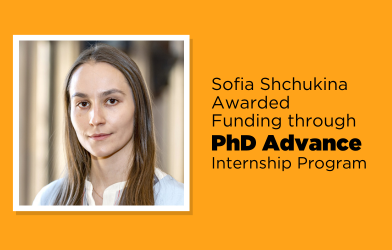
Sofia Shchukina, a PhD student in the Kenneth C. Griffin Department of Economics, was awarded funding for the 2023-24 academic year as part of UChicagoGRAD's PhD Advance internship program for her work with NPR's Planet Money.
The PhD Advance program supports students in building new skills and applying their advanced-degree training in an area of professional interest in academia, industry, nonprofits, or government. The internships are student driven and engage students’ academic work. With coaching from UChicagoGRAD, PhD students create their own projects based on their specific interests and needs. They receive a $6,000 stipend for an internship lasting 300 hours. The PhD Advance program prioritizes applicants who design customized, project-based internships. Project-based internships are those that engage the intern in a coherent set of responsibilities that progressively build toward a specific deliverable or outcome. Internships involving unrelated, ad-hoc tasks are not considered project-based opportunities. The program also gives preference to internship projects at organizations at which the applicant has no previous affiliation.
For more information about the program and to apply, visit grad.uchicago.edu .
Welcome incoming Ph.D. students! (alphabetical listing): Hazal Basaran; Connor Brennan; Joseph Campbell; Seamus Duffy; Sebastian Freed Huici; Alfonso Gauna; Javiera Gazmuri; Ariel Goldszmidt; Maria Del Mar Gomez Ortiz; Jiesheng Hong; Reigner Kane; Hanvit Kim; Philipp Kropp; Neel Lahiri; Yier Ling; Ayman Moazzam; Matthew Neils; Kyunghee Oh; Laura Pittalis; Jose Rishmawi; Amy Smaldone; Marco Spinelli; Rathan Sudheer; Shengning Zhang
Congratulations 2023-2024 Ph.D. Graduates! 2023-2024 PhD graduates (alphabetical listing): Scott Behmer • Maria Ignacia Cuevas de Saint • Santiago Franco • Zhiyu Fu • Michael Galperin • Shanon Hsu-Ming Hsu • Elena Istomina • Ihsan Furkan Kilic • Nadav Kunievsky • Marco Loseto • Nadia Lucas • Sangmin Oh • Aleksei Oskolkov • Estéfano Rubio • Francesco Ruggieri • Sidharth Sah • Marcos Gabriel Sorá • Michael Varley
_____________________________________________________________________________
Postdoctoral Program The Kenneth C. Griffin Department of Economics is proud to announce its first year (2023-24) of having a postdoctoral program!
Selected postdoctoral scholars in the program for 2023-24 are Harshil Sahai (PhD '23) and Esperanza Johnson Urrutia (PhD '23). Postdoctoral scholars in the program for 2024-25 are Elena Istomina and Shanon Hsuan-Ming Hsu.
STEM Eligibility The PhD program is STEM eligible for international students.
Divisional Graduate Resources
Find divisional Graduate Resources here.
The Economics PhD Program is administered by: Kathryn Falzareno Graduate Student Affairs Administrator SHFE 510 Phone: 773-702-3026 Email: [email protected]
PhD Admissions Application
This website uses cookies..
This website uses cookies to improve user experience. By using our website you consent to all cookies in accordance with our Cookie Policy.
Our websites may use cookies to personalize and enhance your experience. By continuing without changing your cookie settings, you agree to this collection. For more information, please see our University Websites Privacy Notice .
College of Liberal Arts and Sciences
Department of Economics
Ph.d. program.
The Ph.D. program is designed to be completed in 4-5 years, with the first 3 years focused on coursework and the final 1-2 years on research and completion of the dissertation. Due to course sequencing, students are normally only admitted for the Fall semester. The requirements for the PhD in Economics are as follows:
Applied Fields
The Department requires that all Ph.D. students achieve a high degree of professional competence in applied fields that will provide a basis for pursuing long-range research and teaching interests.
The Department offers the following fields:
- Industrial Organization
- Labor Economics
- Macroeconomics and Money
- Environmental and Resource Economics
- Applied Empirical Micro‐Economics
Sample Course Sequence
For course descriptions, see the Graduate Catalog .
| 1st Year | ECON 6201: Microeconomic Theory I ECON 6202: Macroeconomic Theory I ECON 6301: Mathematical Economics ECON 6310: Econometrics I | ECON 6211: Microeconomic Theory II ECON 6212: Macroeconomic Theory II ECON 6311: Econometrics II | Preliminary Exams |
|---|---|---|---|
| 2nd Year | ECON 6312: Econometrics III ECON 6494: Graduate Seminar 2 Field Courses | ECON 6494: Graduate Seminar 2 Field Courses | 3rd Year Paper Research |
| 3rd Year | ECON 6494: Graduate Seminar Field Course(s) GRAD 6950: Doctoral Dissertation Research | ECON 6494: Graduate Seminar Field Course(s) GRAD 6950: Doctoral Dissertation Research | Dissertation Research, work on Proposal |
| 4th Year | ECON 6494: Graduate Seminar GRAD 6950: Doctoral Dissertation Research | ECON 6494: Graduate Seminar GRAD 6950: Doctoral Dissertation Research | Dissertation Research |
| 5th Year | ECON 6494: Graduate Seminar GRAD 6950: Doctoral Dissertation Research | ECON 6494: Graduate Seminar GRAD 6950: Doctoral Dissertation Research | Dissertation Defense |
Program Requirements
- Required coursework : Students are required to satisfactorily complete the following PhD core courses: ECON 6201 (Microeconomic Theory I), ECON 6202 (Macroeconomic Theory I), ECON 6211 (Microeconomic Theory II), ECON 6212 (Macroeconomic Theory II), ECON 6301 (Advanced Mathematical Economics I), ECON 6310 (Econometrics I), ECON 6311 (Econometrics II), and ECON 6312 (Econometrics III). In addition, PhD students must satisfactorily complete at least 5 field courses, including at least one 2-course sequence of designated field courses in one of the following fields: labor economics, macroeconomics and money, industrial organization, and environmental and natural resource economics. At least two of the other field courses must be 6000-level. All three must be taught courses (i.e., not independent studies), and at least two of these three field courses must be in Economics. Students must earn an average grade of at least B (3.0) in these five field courses.
- Preliminary Exams : Ph.D. students are required to sit for the Preliminary Exams in both microeconomics and macroeconomics following their first year in the Ph.D. program and pass both parts of the exam within two attempts.
- Seminar Requirement : Students in years 2-5 must satisfactorily complete a section of ECON 6494 (Graduate Seminar) each semester, including the seminar’s presentation requirement(s). This requirement can be waived during some semesters, if a waiver is deemed to be in the student’s academic interest.
- Third Year Research Paper : Students must complete a paper that meets the requirements of the Third Year Research Paper before the end of their third year in the Ph.D. program.
- Dissertation Proposal : Each student must successfully defend a dissertation proposal, normally by the end of the 4th year in the program.
- Foreign Language/Related Area : The Economics PhD program does not have a foreign language or related area requirement.
Department of Economics
The Ph.D. program in Economics at Brown trains students in economic theory and the tools of economic analysis. Through coursework, participation in seminars, and supervised research students are taught to conduct theoretical and empirical research at the highest level.
The Economics Department will be accepting applications to its PhD program for Fall 2024. Applications are due by January 1, 2024. Application information is available at https://www.brown.edu/graduateprograms/economics-phd .
FAQ: If you have questions about the program or the admissions process please consult our list of frequently asked questions . If your questions are not answered there please contact [email protected] .
Requirements
The Ph.D. degree usually requires two years of course work, followed by supervised research and the completion of a doctoral dissertation.
The first year involves core courses in:
- Microeconomics (Economics 2050, 2060)
- Macroeconomics (Economics 2070, 2080)
- Econometrics (Economics 2030, 2040)
- One in mathematics (Economics 2010)
- One in applied economics analysis (Economics 2020)
Students will take microeconomics, macroeconomics, and econometrics in their first year and must receive a passing grade in these courses. Starting in the second year, each student chooses two fields of specialization, and takes an oral field exam. Each field comprises two advanced courses within an area. Beyond the fields, the student takes three additional advanced courses, for a total of seven. Students must receive a B or better in these courses. The rest of pre-dissertation requirements include a poster presentation in late March, a research paper turned in during May of the third year, and successful seminar presentations each year from the fourth year and on.
Handbook of the Graduate Program
The detailed description of all requirements, along with guidelines for the student, can be found in The Handbook of the Graduate Program.
View Handbook
Dissertation
The culmination of the Ph.D. program is the dissertation, which embodies the results of the student's original research. Work on the dissertation usually takes two-three years after completion of course work. Students working on dissertations participate actively in research workshops. After a faculty committee has approved the dissertation, the student takes a final oral examination on the subject of the dissertation.
High Standards
The work in the Ph.D. program is demanding and the standards of performance are high. The Department's reputation for providing superb training has enabled its graduates to compile an excellent placement record. Some of the institutions at which recent graduates have obtained positions include major research universities (Chicago, Harvard, Johns Hopkins, Michigan, Dartmouth, Minnesota, New York University, Penn State, University College London, University of British Columbia, University of Pittsburgh, University of Toronto, University of Virginia), prestigious liberal arts colleges (Wesleyan University and Williams College), government and international agencies (International Monetary Fund, Federal Trade Commission, World Bank, Congressional Budget Office, Board of Governors of the Federal Reserve System, US Census Bureau), and private industrial, consulting, and research firms. Brown graduates have an outstanding record of research accomplishments and publications.
Exceptional Faculty
The Department currently has about 40 tenure track faculty . The faculty includes several Fellows of the Econometric Society, several Sloan Fellows, several Guggenheim Fellows, several recipients of prestigious prizes and awards, the editor of the Journal of Economic Growth, the editor of the Journal of Financial Intermediation, a past editor of the American Economic Review, and several associates and fellows of the National Bureau of Economic Research and the Center for Economic Policy Research. The Department's faculty publishes regularly their research in the top journals of economics and other disciplines, as well as in top field journals (see our "Selected Faculty Publications"). Members of the faculty in the Department have also delivered numerous named, keynote and plenary lectures in main international scientific conferences. The atmosphere in the Department is highly collegial. Interaction among faculty members and graduate students is easy and extensive. The department collaborates with the Brown Population Studies and Training Center, which provides support for students doing research in population economics and economic development. Active workshops provide opportunities for faculty, graduate students, and visiting scholars to discuss current research. Library and computer facilities are excellent.

PhD in Economics
The doctoral program in Economics at Rice University provides rigorous training in economic theory and econometrics in order to prepare students for research careers in economics. In 2014, the department launched the Rice Initiative for the Study of Economics (RISE) in order to enhance its role as a leading center of economic research. Since then, the department has hired ten new faculty. In addition, it has established itself as a leading institution for structural empirical microeconomics, an approach to economic analysis that combines economic theory and econometrics to address substantive economic issues. The small size of the program, approximately 45 graduate students working with 24 full-time faculty, promotes close faculty student interactions and collaboration, as well as strong relationships among the students.
Effective 2021-2022 academic year, all students receiving MA or PhD degrees in Economics will also receive Major Concentration in Econometrics and Quantitative Economics, and will be able to apply for a 24-month STEM extension of F-1 Optional Practical Training (OPT).
At a Glance
Full-time faculty working with students : 24
Students : 55 doctoral students
Number Admitted : 7-10 students each year
Fields of Study : Theoretical and Applied Econometrics, Applied Microeconomics, Economic Theory, Financial Economics, Game Theory, Political Economics, Energy Economics, Development Economics, Empirical Industrial Organization, Labor Economics, Macroeconomics, Public Finance, Health Economics.
Degrees awarded : PhD in Economics with a Major Concentration in Econometrics and Quantitative Economics (STEM designated) , Ph.D. in Economics with an M.A. in Statistics , and an additional Major Concentration in Finance . An M.A. degree is awarded to students pursuing Ph.D. in Statistics when they complete the requirements for M.A. in Economics with a Ph.D. in Statistics . It is also awarded to students who complete all the requirements for the Ph.D. in Economics working toward their dissertation.
Learn More about the Economics Doctorate Program
Monday, May. 9, 2022
Monday, Jan. 11, 2021
Friday, Jun. 5, 2020
Monday, Feb. 10, 2020

The PhD in Economics is a small and focused program, with students concentrating in one of two areas of specialization: Industrial Organization, Competition Policy, and Regulatory Economics and Labor Economics. The program is applied in nature and is designed for students who are considering work in the government and private sectors as well as academic jobs.
In The News

Will the US ban the use of single-use plastics like England, India, Hong Kong and other countries?

Anti-Asian rhetoric during COVID-19 pandemic negatively impacted employment and earnings, new Northeastern research finds

Live Nation and Ticketmaster face a federal antitrust lawsuit. Will the government finally break up the monopoly?
Fewer than ten students enter the PhD in Economics program each year. Students may concentrate in either Industrial Organization, Competition Policy, and Regulatory Economics; or Labor Economics. Each field is covered in two semester courses at the PhD level. Admission from the Bachelor’s level requires taking the MA core courses and two additional elective courses plus the PhD requirements.
The field of Industrial Organization, Competition Policy, and Regulatory Economics analyzes and evaluates the performance of markets and devises appropriate policy responses when markets are not performing well. By developing techniques for examining the structure, conduct, and performance of markets, it bridges economic theory and the real world. In addition, it helps to develop and implement antitrust and regulatory policies to remedy failures of those markets.
The field of Labor Economics analyzes the neoclassical labor market, covering such topics as the supply of labor from the perspective of the individual and the family, human capital, the demand for labor, market equilibrium, and the determination and distribution of wages and earnings. Theoretical and empirical issues surrounding current topics in labor economics are examined, and may include discrimination, efficiency wage theory, labor legislation, life cycle analysis and the use of microdata (panel studies), search behavior, intergenerational earnings mobility, and employment and training policies.
In addition to industrial organization and labor, students take field courses, when available, in other research areas. Development economics is an example of one such area.
Learn more about the PhD program in Economics from the College of Social Sciences and Humanities .
The Economics department faculty engage in research in a wide range of academic and applied areas including industrial organization, competition policy, labor economics, development economics, network science, innovation policy, health, applied game theory, monetary policy, banking, technological change, law and economics, and education. They serve as mentors and advisors, and collaborate alongside students to solve the most pressing global challenges facing established and emerging markets.
- Financial Security: Students enjoy a guaranteed five-year funding package, covering Fall, Spring, and Summer terms
- Small & Focused: Fewer than ten students are accepted yearly
- In-Depth Specialization: Achieve expertise with two PhD-level courses per specialization over two semesters.
- Advanced Economic Analysis: Apply advanced economic theory and methodologies to address real-world economic, social, and environmental challenges in diverse policy settings.
- Expertise in Quantitative Methods: Gain proficiency in applied econometrics and statistical learning, utilizing cutting-edge techniques to analyze big data, test economic hypotheses, forecast trends, and establish causality.
- Research Excellence: Develop and execute impactful research agendas, culminating in a publication-quality doctoral dissertation that showcases your ability to contribute original insights to the field.
- Career-Ready Skills: Acquire the expertise needed to secure professional roles in academia, research, consulting, management, and policy making, leveraging the skills honed during your graduate studies.
- Versatile Application of Economics: Utilize formal economic tools to tackle pressing issues such as inequality, social and racial justice, and competitive markets across various policy areas and career contexts.
- Effective Communication: Enhance your ability to communicate economic knowledge clearly and persuasively in academic, professional, and public forums, including classrooms, conferences, and professional meetings.
Our graduates pursue careers within academia and beyond.
- Analysis Group
- Charles River Associates
- City University of New York (CUNY), Queen’s College
- The Brattle Group
- Ernst and Young
- Federal Trade Commission
- Federal Reserve Bank
- Moody’s Analytics
Application Materials
Application.
- Application fee – US $100
- Personal statement
- Unofficial transcripts from all institutions attended
- English proficiency for international applicants
- Three letters of recommendation
- Scores from the Graduate Record Examination (GRE) – Optional
Admissions deadline for Fall term: December 1
- Program Website
Request Information for PhD in Economics
Queen's University Belfast
- Semester dates
- Ask a question
- Staff Directory
- Undergraduate
- Postgraduate
International Students
- Students from Great Britain
- Fees & Funding
- Open Learning
- Short Courses
- Accommodation
- Life in Belfast
- Open Days & Campus Tours
- The Graduate School
- Queen's Sport
- Your Student Guide
- Research Themes
- Global Research
- Research Areas
- Research Excellence Framework
- Research Strategy
- Research Impact
- Research Opportunities
- Postdoctoral Development Centre
- Governance, Ethics and Integrity
- Sustainability Research
- Research Contacts
- Applying to Queen's
English Language Requirements
Tuition fees.
- International Scholarships
- INTO Queen's
- Exchange and Study Abroad
- Find Your Country / Region
- Middle East and North Africa
- South East Asia
- Sub Saharan Africa
- Commercialisation
- Case Studies
- Knowledge Transfer Partnerships
- IP & Innovation
- Business Support
- Business Engagement
- Chief Executives' Club
- Queen's Business School
- William J Clinton Leadership Institute
- MBA programme
- Campus & Facilities
- Sustainability
- Social Charter
- Public Engagement
- Leadership and Structure
- Strategy 2030
- Faculties & Schools
- Professional Services
- University Department List
- Rankings and Reputation
- Postgraduate Research 2024
- PhD Opportunities
- Find a PhD Supervisor
Course content
- Entry Requirements
- Fees and Funding
The economics group is an energetic and enterprising research cluster that continuously strives for excellence in both its teaching and its scholarship. The group's research strengths cover economic theory, applied economics and econometrics. The group has a particular interest in game theory and economic history. Aside from gaining close research advice and direction from their supervisors and other academics in the group, research students benefit from attending courses and tailor-made reading groups to complete their background preparation in economics. Queen's Business School prides itself on research-led teaching and offers its research students experience as teaching assistants in a variety of undergraduate courses. Students regularly attend the School's various seminar series, which attract leading academics from around the world. Students also present their work at these events, gaining invaluable advice and preparation for the academic job market. Mode of study/duration Registration is on a full-time or part-time basis, under the direction of a supervisory team appointed by the University. You will be expected to submit your thesis at the end of three years of full-time registration for PhD, or two years for MPhil (or part-time equivalent).
Subject Summary
You’ll be researching topics including economic theory, applied economics, econometrics, game theory and economic history, economics of networks and institutions, business, empirical economics and econometrics, and economic growth. You’ll benefit from close research advice and direction from your supervisors and other academics in the group, plus you’ll attend courses and tailor-made reading groups to complete your background preparation.
Student Testimonials
My research focuses on the entrepreneurial function in socially structured economies. I use insights from network science to explain the economic prosperity and demise of individuals, firms and markets. The resources provided are fantastic, especially in the areas of game theory and economic history. The programme is small, which allows me frequent contact with my supervisors and other academics. Owen Sims Final-Year PhD Student
Research Information
Associated Research Institutional and relational economics Social networksStrategic formation of coalitions and networks Banking crises Crime and conflict Political economy Methodology and history of economics Behavioural and experimental economics Economics of education Financial econometrics Health economics Labour economics and social policy Panel data Demography and economic growth Entrepreneurship Long-run development
Career Prospects
Introduction The School has a proven track-record of placing its PhD graduates in tenure-track research and teaching posts at top universities in the UK and elsewhere.
People teaching you
Postgraduate Administrator Business School Email: [email protected]
Course structure
There is no specific course content as such. Students are expected to take research training modules that are supported by the School, which focus on quantitative and qualitative research methods. Students are also expected to carry out their research under the guidance of their supervisors. Over the course of study students can attend postgraduate skills training organised by the Graduate School. Students will normally register, in the first instance, as an ‘undifferentiated PhD student’, which means that they have satisfied staff that they are capable of undertaking a research degree. The decision as to whether students should undertake an MPhil or a PhD is delayed until they have completed ‘differentiation’. Differentiation takes place about 9 months after registration for full time students and about 18 months for part time students. Students are normally asked to submit work to a panel of up two academics and this is followed up with a formal meeting with the ‘Differentiation Panel’. The Panel then make a judgement about the student’s capacity to continue with their study. Sometimes students are advised to revise their research objectives or to consider submitting their work for an MPhil qualification rather than a doctoral qualification. To complete with a doctoral qualification students are required to submit a thesis of approximately 80,000 words and attend a viva voce [oral examination] with an external and internal examiner to defend their thesis. A PhD programme runs for 3-4 years full-time or 6-8 years part-time. Students can apply for a writing up year should it be required. The PhD is open to both full and part time candidates and is often a useful preparation for a career within academia or industry. Full time students are often attracted to research degree programmes, because they offer an opportunity to pursue in some depth an area of academic interest. The part time research degree is an exciting option for those already working in the accounting field who are seeking to extend their knowledge on an issue of professional interest. Often part time candidates choose to research an area that is related to their professional responsibilities. If students meet the Entry Requirements, the next step is to check whether supervision is available in the chosen area as students are only accepted if expert research supervision can be offered in the chosen area. Therefore, the research question needs to engage with the research interests of one of our staff. Undertaking a PhD is a substantial commitment, and the research proposal is an important part of the application process. Thus, given the importance of the research proposal in the application process, applicants are encouraged to take time in preparing their proposal. In addition, applicants should read the information about studying and applying for a PhD in Queen's Business School at: https://www.qub.ac.uk/schools/queens-business-school/study/postgraduate-research/
Assessment processes for the Research Degree differ from taught degrees. Students will be expected to present drafts of their work at regular intervals to their supervisor who will provide written and oral feedback; a formal assessment process takes place annually. This Annual Progress Review requires students to present their work in writing and orally to a panel of academics from within the School. Successful completion of this process will allow students to register for the next academic year. The final assessment of the doctoral degree is both oral and written. Students will submit their thesis to an internal and external examining team who will review the written thesis before inviting the student to orally defend their work at a Viva Voce
Learning and Teaching
Entrance requirements.
Graduate Normally a UK 2.1 Honours degree (or equivalent qualification acceptable to the University) and a UK Master's degree in a relevant discipline with a final result of 60% (or equivalent qualification acceptable to the University). In cases where applicants have not completed a Master's degree, applications may be considered where applicants hold a 1st class Honours undergraduate degree from a high-ranking, research focus university and have demonstrated an ability to conduct academic research.
For information on international qualification equivalents, please check the specific information for your country .
Evidence of an IELTS* score of 7.0, with not less than 6.0 in any component, or an equivalent qualification acceptable to the University is required (*taken within the last 2 years).
International students wishing to apply to Queen's University Belfast (and for whom English is not their first language), must be able to demonstrate their proficiency in English in order to benefit fully from their course of study or research. Non-EEA nationals must also satisfy UK Visas and Immigration (UKVI) immigration requirements for English language for visa purposes.
For more information on English Language requirements for EEA and non-EEA nationals see: www.qub.ac.uk/EnglishLanguageReqs .
If you need to improve your English language skills before you enter this degree programme, INTO Queen's University Belfast offers a range of English language courses. These intensive and flexible courses are designed to improve your English ability for admission to this degree.
| Northern Ireland (NI) | TBC |
| Republic of Ireland (ROI) | TBC |
| England, Scotland or Wales (GB) | TBC |
| EU Other | £20,500 |
| International | £20,500 |
1 EU citizens in the EU Settlement Scheme, with settled or pre-settled status, are expected to be charged the NI or GB tuition fee based on where they are ordinarily resident, however this is provisional and subject to the publication of the Northern Ireland Assembly Student Fees Regulations. Students who are ROI nationals resident in GB are expected to be charged the GB fee, however this is provisional and subject to the publication of the Northern Ireland Assembly student fees Regulations.
2 It is expected that EU students who are ROI nationals resident in ROI will be eligible for NI tuition fees. The tuition fee set out above is provisional and subject to the publication of the Northern Ireland Assembly student fees Regulations.
3 EU Other students (excludes Republic of Ireland nationals living in GB, NI or ROI) are charged tuition fees in line with international fees.
All tuition fees quoted relate to a single year of study unless stated otherwise. All fees will be subject to an annual inflationary increase, unless explicitly stated otherwise.
More information on postgraduate tuition fees .
Economics costs
There are no specific additional course costs associated with this programme.
Additional course costs
All students.
Depending on the programme of study, there may also be other extra costs which are not covered by tuition fees, which students will need to consider when planning their studies . Students can borrow books and access online learning resources from any Queen's library. If students wish to purchase recommended texts, rather than borrow them from the University Library, prices per text can range from £30 to £100. Students should also budget between £30 to £100 per year for photocopying, memory sticks and printing charges. Students may wish to consider purchasing an electronic device; costs will vary depending on the specification of the model chosen. There are also additional charges for graduation ceremonies, and library fines. In undertaking a research project students may incur costs associated with transport and/or materials, and there will also be additional costs for printing and binding the thesis. There may also be individually tailored research project expenses and students should consult directly with the School for further information.
Some research programmes incur an additional annual charge on top of the tuition fees, often referred to as a bench fee. Bench fees are charged when a programme (or a specific project) incurs extra costs such as those involved with specialist laboratory or field work. If you are required to pay bench fees they will be detailed on your offer letter. If you have any questions about Bench Fees these should be raised with your School at the application stage. Please note that, if you are being funded you will need to ensure your sponsor is aware of and has agreed to fund these additional costs before accepting your place.
How do I fund my study?
Find PhD opportunities and funded studentships by subject area.
We offer numerous opportunities for funded doctoral study in a world-class research environment. Our centres and partnerships, aim to seek out and nurture outstanding postgraduate research students, and provide targeted training and skills development.
The Government offers doctoral loans of up to £26,445 for PhDs and equivalent postgraduate research programmes for English- or Welsh-resident UK and EU students.
Information on Postgraduate Research scholarships for international students .
Funding and Scholarships
The Funding & Scholarship Finder helps prospective and current students find funding to help cover costs towards a whole range of study related expenses.
How to Apply
Apply using our online Postgraduate Applications Portal and follow the step-by-step instructions on how to apply .
Find a supervisor
If you're interested in a particular project, we suggest you contact the relevant academic before you apply, to introduce yourself and ask questions.
To find a potential supervisor aligned with your area of interest, or if you are unsure of who to contact, look through the staff profiles linked here .
You might be asked to provide a short outline of your proposal to help us identify potential supervisors.
Download Postgraduate Prospectus
- English Swedish Norwegian Finnish Danish German English French Dutch
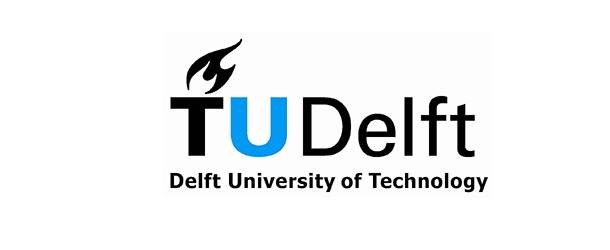
Quick facts
- Recruitment
Categories:
- Environmental science
Apply by: 2024-10-28
PhD Position on Socio-Economic Tipping Points and Positive Levers in Scaling up Nature Based Solutions
Are you interested in socio-economic levers to upscale Nature Based Solutions? Join the NL2120 National Growth Fund Program with other 15 PhDs/PostDocs, and 30 NGOs, research institutes and industry.
Job description
Climate change, loss of biodiversity and resulting economic losses, pose an increasing threat to the prosperity and well-being of current and future generations. To be able to live and work safely and healthily in the Netherlands in the future, fundamental changes are needed in our land use and soil and water management. It is internationally recognized that Nature Based Solutions (NBS) – integral solutions that harness the power of nature to e.g. reduce climate and environmental problems in a sustainable manner – can play an important role in this transition.
NBS are at the core of climate policies, especially for climate change adaptation (e.g. the EU Adaptation Strategy). While their ecological and societal benefits are well known, NBS often compete for space and face land use trade-offs with various economic activities. Furthermore, at times short- and mid-term benefits for either local public (e.g. regional or municipal governments) or private actors (e.g. households and companies) are unclear or not yet realized. These two problems jointly create barriers to scaling up and speedy uptake of NBS. At the same time, NBS and nature, in general, are argued to become new critical ‘asset class’, increasingly attracting the attention of financial investors and calling for quantitative assessments of mechanisms to generate, maintain and distribute economic value of NBS. Even the high-level COP meetings call for identifying positive tipping points for NBS uptake and scaling up. Such analysis needs to rely on the existing, largely qualitative NBS frameworks, and go beyond to develop quantitative methods to assess benefits for various private and public actors across timescales (short-, mid- and long-term) and the distribution of both benefits and costs among actors to give guidance for the design of cost-effective NBS investment policies.
This PhD project will focus on the socio-economic and financial tipping points and positive levers in scaling up NBS. This requires mapping short-, mid- and long-term benefits and costs for private and public actors. A major part of this PhD research project will focus on computational agent-based modeling to capture the mechanisms that potentially drive tipping to NBS adoption that are socially acceptable, as well as economically and financially feasible for private and public actors. The PhD student will develop and apply an agent-based model to identify the distributional effects of NBS for various actors, and to explore under what circumstances positive socio-economic tipping points for NBS adoption emerge for a selection of NBS across policy scenarios.
Requirements
A candidate should ideally have:
- Master’s degree in Environmental Policy; Spatial or Environmental Economics; Complex Systems Science; or Environmental Science.
- Previous experience with agent-based modeling or with one of the programming languages (Python; Java; C++; Julia) is an advantage.
- Capacity to perform statistical data analysis is beneficial.
- Domain knowledge in the field of environmental policy, sustainability or nature based solutions specifically is an asset.
- Excellent written and spoken command of English. For more details please check the Graduate Schools Admission Requirements: https://www.tudelft.nl/onderwijs/opleidingen/phd/admission . Dutch is not obligatory but is an advantage.
Doing a PhD at TU Delft requires English proficiency at a certain level to ensure that the candidate is able to communicate and interact well, participate in English-taught Doctoral Education courses, and write scientific articles and a final thesis. For more details please check the Graduate Schools Admission Requirements .
Conditions of employment
Fixed-term contract: 1 year.
Doctoral candidates will be offered a 4-year period of employment in principle, but in the form of 2 employment contracts. An initial 1,5 year contract with an official go/no go progress assessment within 15 months. Followed by an additional contract for the remaining 2,5 years assuming everything goes well and performance requirements are met.
Salary and benefits are in accordance with the Collective Labour Agreement for Dutch Universities, increasing from € 2770 per month in the first year to € 3539 in the fourth year. As a PhD candidate you will be enrolled in the TU Delft Graduate School. The TU Delft Graduate School provides an inspiring research environment with an excellent team of supervisors, academic staff and a mentor. The Doctoral Education Programme is aimed at developing your transferable, discipline-related and research skills.
From 1 September next, a salary increase of 3.7% applies due to a Collective Agreement amendment, followed by an additional 1% increase on 1 January 2025. In addition, most employees employed on 1 September 2024 will receive a one-off payment of €300 gross based on full-time employment.
The TU Delft offers a customisable compensation package, discounts on health insurance, and a monthly work costs contribution. Flexible work schedules can be arranged.
For international applicants, TU Delft has the Coming to Delft Service . This service provides information for new international employees to help you prepare the relocation and to settle in the Netherlands. The Coming to Delft Service offers a Dual Career Programme for partners and they organise events to expand your (social) network.
Delft University of Technology
Delft University of Technology is built on strong foundations. As creators of the world-famous Dutch waterworks and pioneers in biotech, TU Delft is a top international university combining science, engineering and design. It delivers world class results in education, research and innovation to address challenges in the areas of energy, climate, mobility, health and digital society. For generations, our engineers have proven to be entrepreneurial problem-solvers, both in business and in a social context.
At TU Delft we embrace diversity as one of our core values and we actively engage to be a university where you feel at home and can flourish. We value different perspectives and qualities. We believe this makes our work more innovative, the TU Delft community more vibrant and the world more just. Together, we imagine, invent and create solutions using technology to have a positive impact on a global scale. That is why we invite you to apply. Your application will receive fair consideration.
Challenge. Change. Impact!
Faculty Technology, Policy and Management
The Faculty of TPM provides an important contribution to solving complex technical-social issues, such as energy transition, mobility, digitalisation, water management and (cyber) security. TPM does this with its excellent education and research at the intersection of technology, society and policy. We combine insights from both engineering and social sciences as well as the humanities. TPM develops robust models and designs, is internationally oriented and has an extensive network of knowledge institutions, companies, social organisations and governments.
Click here to go to the website of the Faculty of Technology, Policy and Management.
Additional information
For additional information about this project feel free to contact prof. dr. Tatiana Filatova (TU Delft; [email protected] ). For information about the application procedure, contact the HR Advisor Martine van de Vorst, email: [email protected] .
More jobs from Delft University of Technology
Similar jobs.
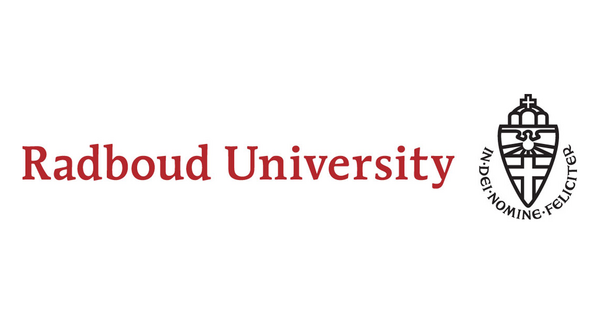

IMAGES
COMMENTS
Doctoral Program. The Ph.D. program is a full time program leading to a Doctoral Degree in Economics. Students specialize in various fields within Economics by enrolling in field courses and attending field specific lunches and seminars. Students gain economic breadth by taking additional distribution courses outside of their selected fields of ...
The Ph.D. Program in the Department of Economics at Harvard is addressed to students of high promise who wish to prepare themselves in teaching and research in academia or for responsible positions in government, research organizations, or business enterprises. Students are expected to devote themselves full-time to their programs of study.
Here is the not-very-surprising list of things that will help you get into a good econ PhD program: good grades, especially in whatever math and economics classes you take, a good score on the ...
PhD Program. Year after year, our top-ranked PhD program sets the standard for graduate economics training across the country. Graduate students work closely with our world-class faculty to develop their own research and prepare to make impactful contributions to the field. Our doctoral program enrolls 20-24 full-time students each year and ...
Economics Graduate Office. Department of Economics. 530 Evans Hall #3880. Berkeley, CA 94720-3880. Fax: (510) 642-6615. Email: [email protected]. The Ph.D. program at Berkeley is designed for students interested in pursuing advanced study and conducting original research in Economics. The Ph.D. degree is awarded in recognition of the ...
The Requirements for the Ph.D. degree in Economics at the University of North Carolina at Chapel Hill, effective for the entering class of 2020, consist of successfully completing: Course Requirements. Doctoral Written Examination. Doctoral Dissertation. This document describes each of these requirements in detail.
By the end of year two, PhD students must complete the requirements for two major fields in economics. This entails earning a B or better in two designated courses for each field. ... *Dual PhD in Economics and Statistics has an additional requirement of 14.386. Economic Development. Major and minor: 14.771 and 14.772 or 14.773. Finance. Major ...
Admissions. The department of Economics at Harvard University is committed to seeking out and mentoring scholars who wish to pursue a rigorous and rewarding career in economic research. Our graduates are trailblazers in their fields and contribute to a diverse alumni community in both the academic and non-academic sectors.
The Department of Economics is home to over 50 faculty members and approximately 140 enrolled graduate students. The department hosts weekly seminars with academics from around the world in a wide range of subfields within economics including behavioral economics, international economics, industrial relations, industrial organization, microeconomic theory, macroeconomics, finance, econometrics ...
The application for September 2024 admission is now closed. Your application is considered complete when you have successfully submitted the following requirements by the December 15 application deadline: Online application. $90 application fee. Scanned copy of college transcripts. Three letters of recommendation.
Program Requirements. As a PhD student in the Economics program, students will spend the first two years in the program engaged in rigorous coursework designed to develop a foundational understanding of economics. In the following years, students transition to research under the guidance of strong faculty mentorship and participate in field ...
The Ph.D. program in the Department of Economics at Columbia University trains students to do cutting edge research in economics. Students in our program do research in all major areas of economics including microeconomics, macroeconomics, econometrics, international economics, labor economics, public finance, industrial organization, development economics, and urban economics.
Ph.D. Program. Make an impact: The intellectual rigor from researchers associated with Yale Economics drives innovations in domestic and international policy. Yale's Department of Economics offers a challenging and rigorous academic program, a distinguished and accessible faculty, and a friendly, supportive environment for study.
About the Ph.D. Program. The Ph.D. Program in Economics at UCLA prepares students for careers as economists in academia, business and government. The program combines rigorous work in economic theory and careful study of real-world problems and institutions. Graduates from this program work at major universities around the world, national and ...
The rigorous PhD economics program at Johns Hopkins is among the best in the nation. With its world-class faculty, individualized attention, and small classes, the doctoral program is the centerpiece of the Department of Economics. From financial analysis to applied research, students are well-prepared to be leaders in the field. The department is dedicated to...
The Ph.D. in Economics The Ph.D. program in economics admits between 8 and 12 students per year and prepares them for a successful career in academia, government, international organizations, or the private sector. In the first year, students take classes in microeconomics, macroeconomics, and econometrics, as well as mathematical economics and economic history. In the...
Students in the PhD program can earn either a Master of Science (MS) in Economics or a Master of Philosophy (MPhil) in Economics degree while pursuing the PhD degree. Students in good standing may apply for the MS once they have completed the 30 required credits: ECON 8301, 8305 and 8375; two courses chosen from 8302, 8306 and 8376; and five ...
Northwestern's Ph.D. program in Economics owes its international reputation to an outstanding faculty, a well-organized program of study, extensive student-faculty interaction, and an excellent record of recruiting, training, and placing talented graduate students. In addition, the Department of Economics and the Finance Department in the ...
The Kenneth C. Griffin Department of Economics is proud to announce its first year (2023-24) of having a postdoctoral program! Selected postdoctoral scholars in the program for 2023-24 are Harshil Sahai (PhD '23) and Esperanza Johnson Urrutia (PhD '23). Postdoctoral scholars in the program for 2024-25 are Elena Istomina and Shanon Hsuan-Ming ...
The Ph.D. program is designed to be completed in 4-5 years, with the first 3 years focused on coursework and the final 1-2 years on research and completion of the dissertation. Due to course sequencing, students are normally only admitted for the Fall semester. The requirements for the PhD in Economics are as follows:
Graduate. The Ph.D. program in Economics at Brown trains students in economic theory and the tools of economic analysis. Through coursework, participation in seminars, and supervised research students are taught to conduct theoretical and empirical research at the highest level. The Economics Department will be accepting applications to its PhD ...
Resources. The doctoral program in Economics at Rice University provides rigorous training in economic theory and econometrics in order to prepare students for research careers in economics. In 2014, the department launched the Rice Initiative for the Study of Economics (RISE) in order to enhance its role as a leading center of economic research.
Economics. The PhD in Economics is a small and focused program, with students concentrating in one of two areas of specialization: Industrial Organization, Competition Policy, and Regulatory Economics and Labor Economics. The program is applied in nature and is designed for students who are considering work in the government and private sectors ...
Entrance requirements. Graduate Normally a UK 2.1 Honours degree (or equivalent qualification acceptable to the University) and a UK Master's degree in a relevant discipline with a final result of 60% (or equivalent qualification acceptable to the University). ... Economics costs. There are no specific additional course costs associated with ...
The PhD student will develop and apply an agent-based model to identify the distributional effects of NBS for various actors, and to explore under what circumstances positive socio-economic tipping points for NBS adoption emerge for a selection of NBS across policy scenarios. Requirements. A candidate should ideally have: